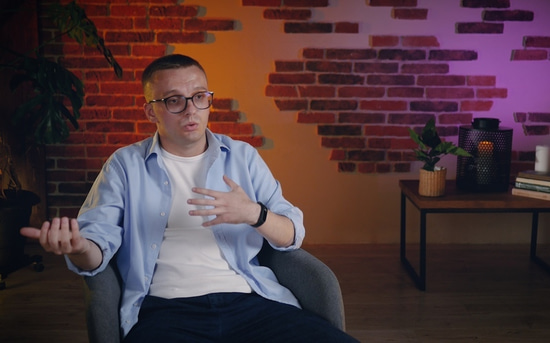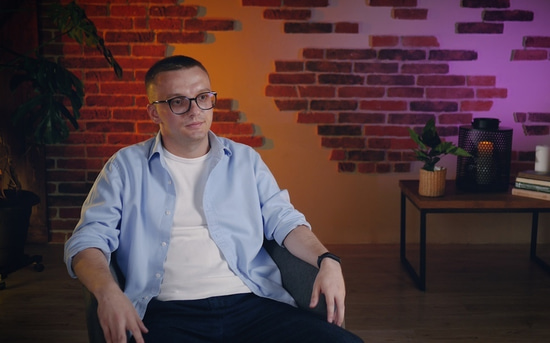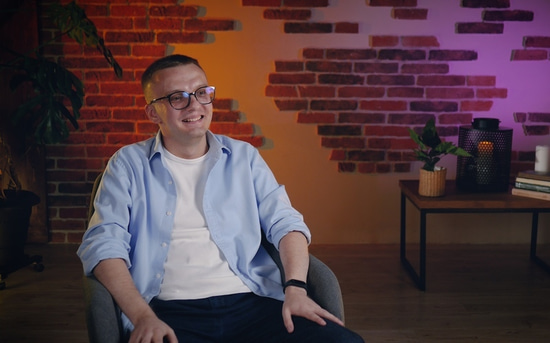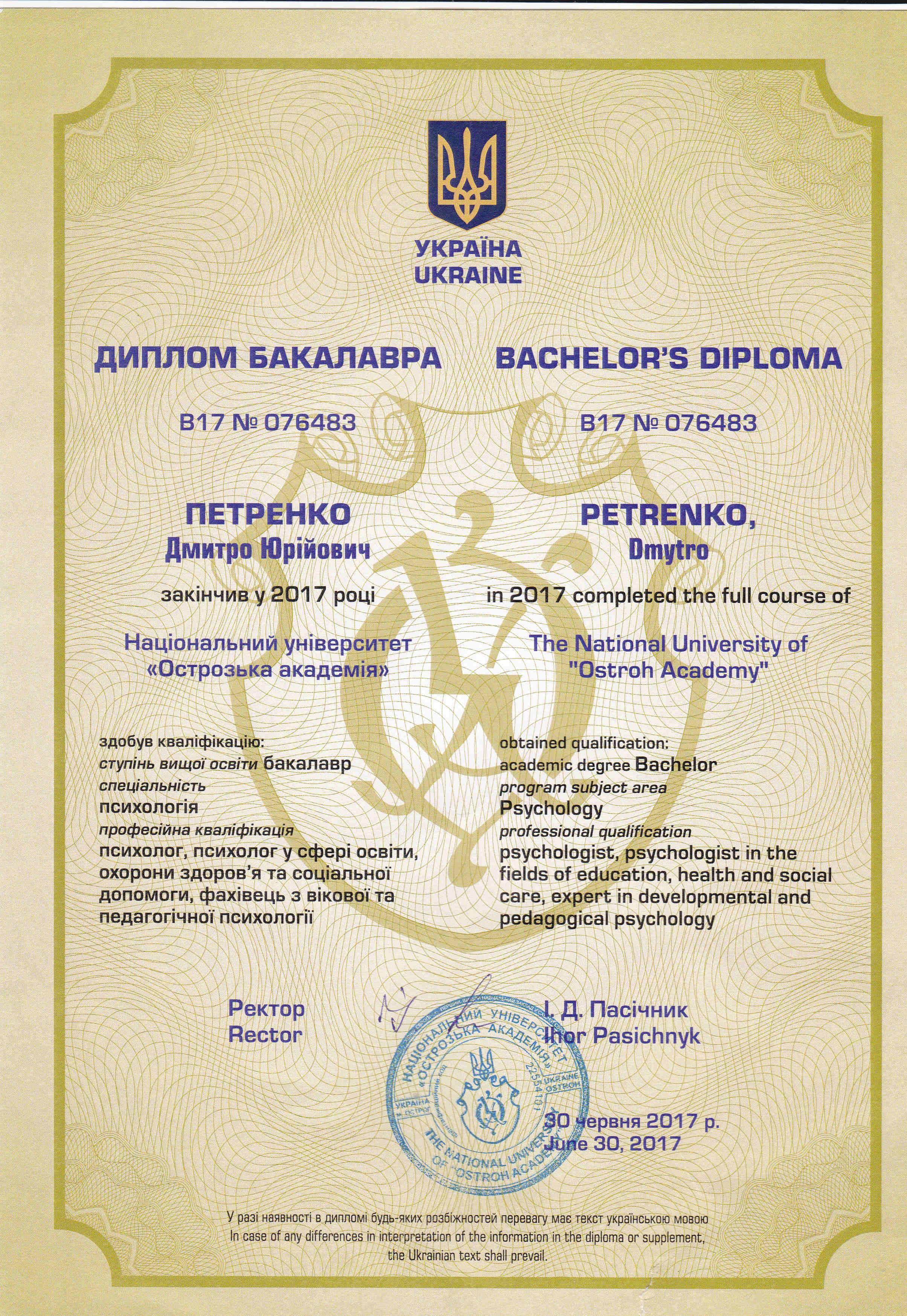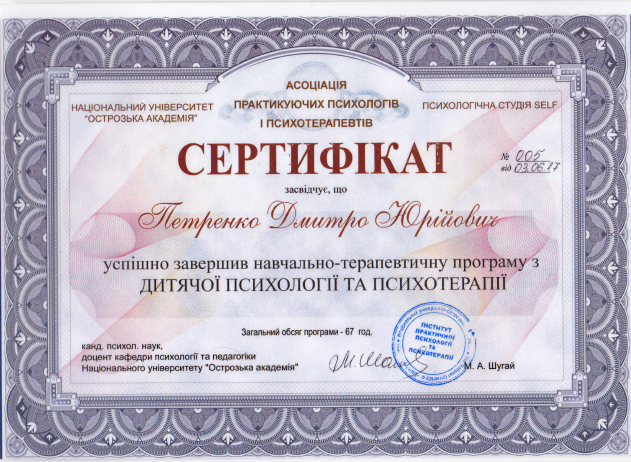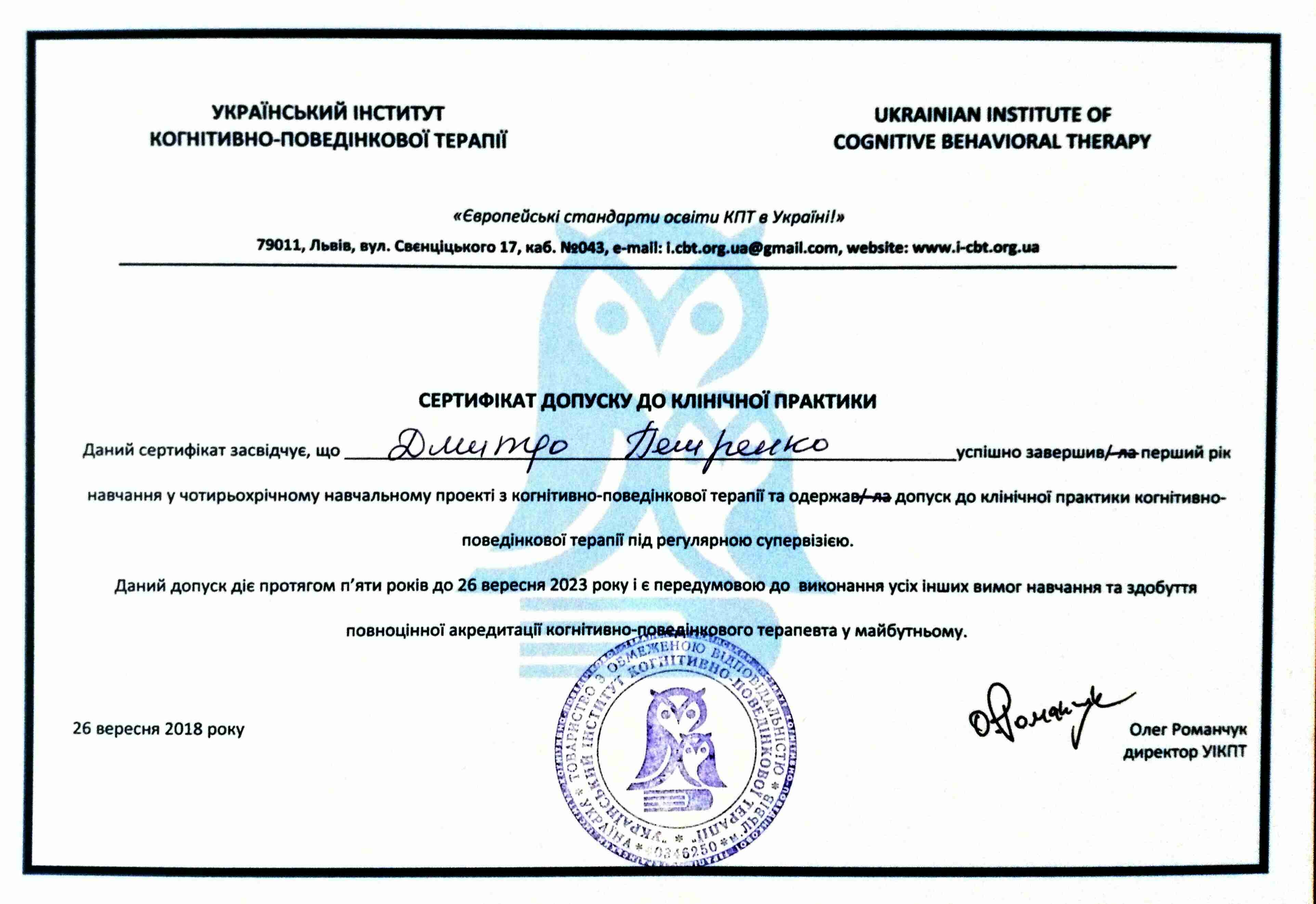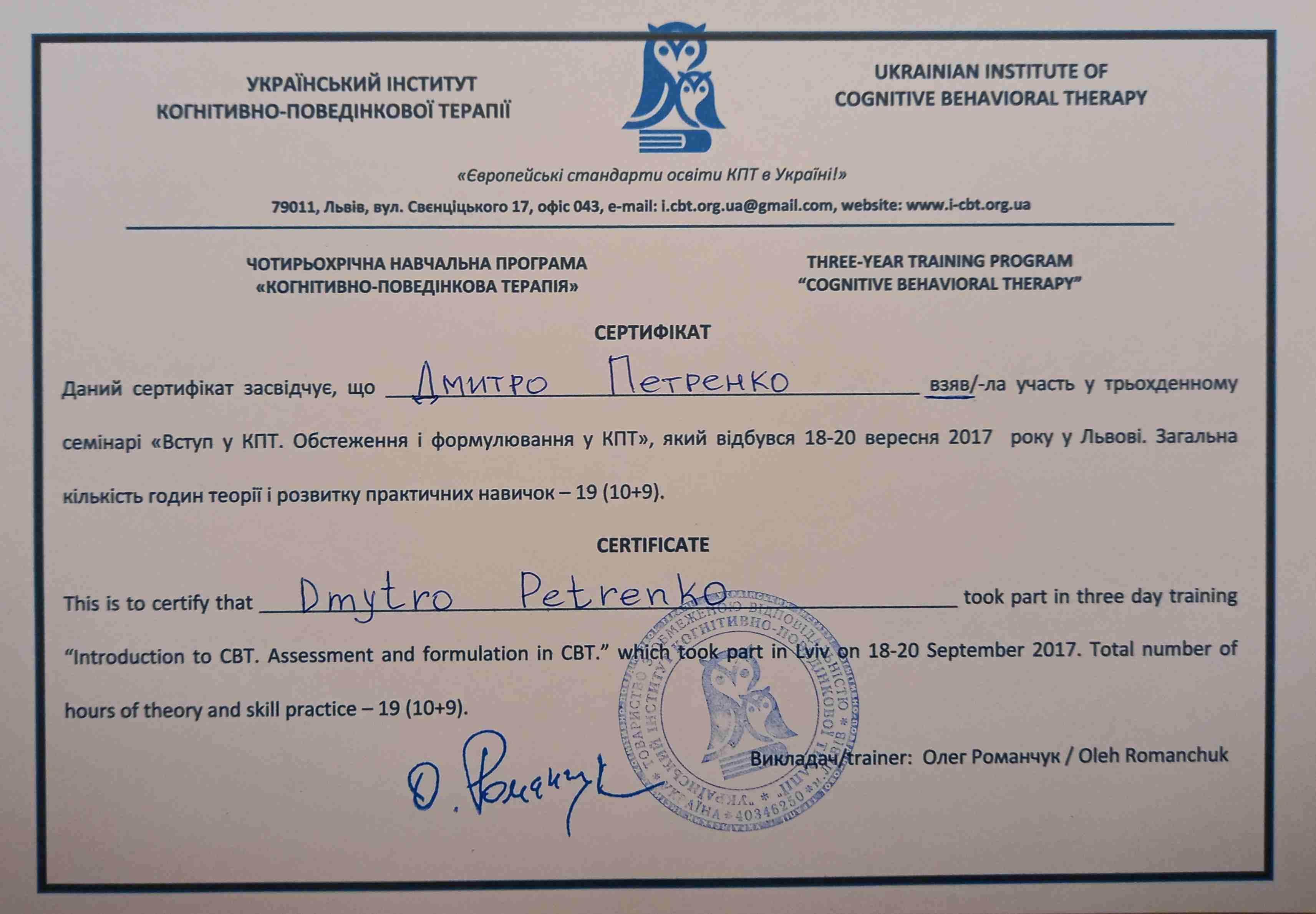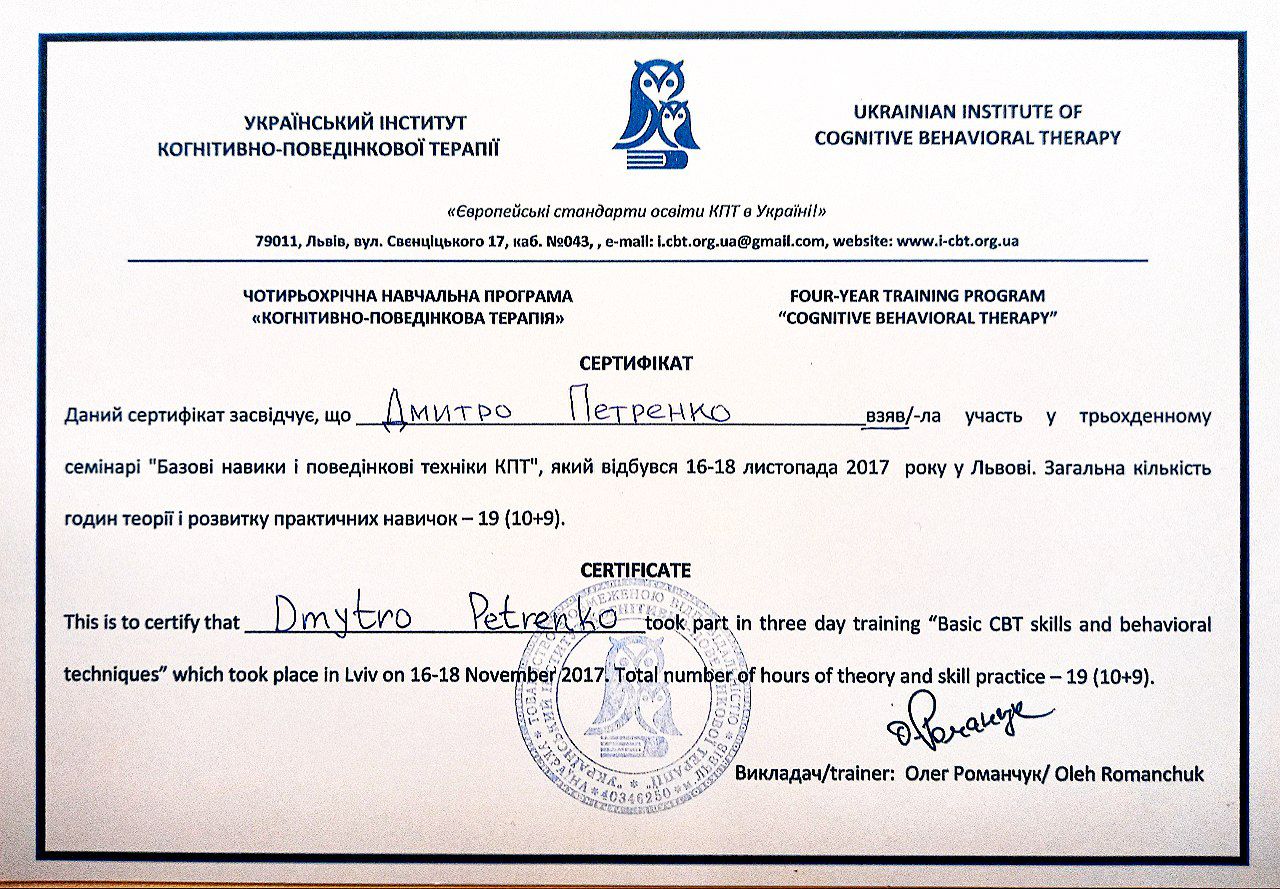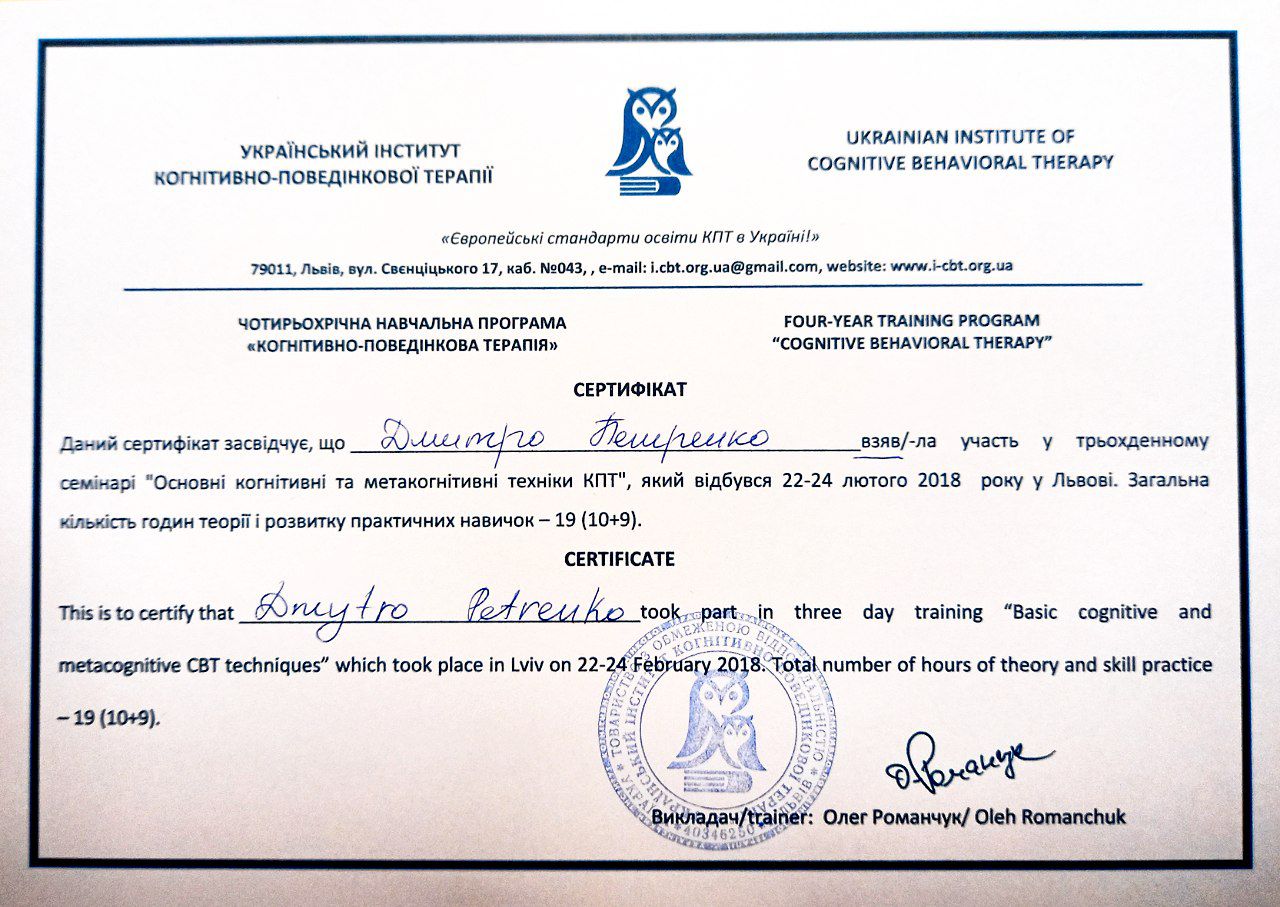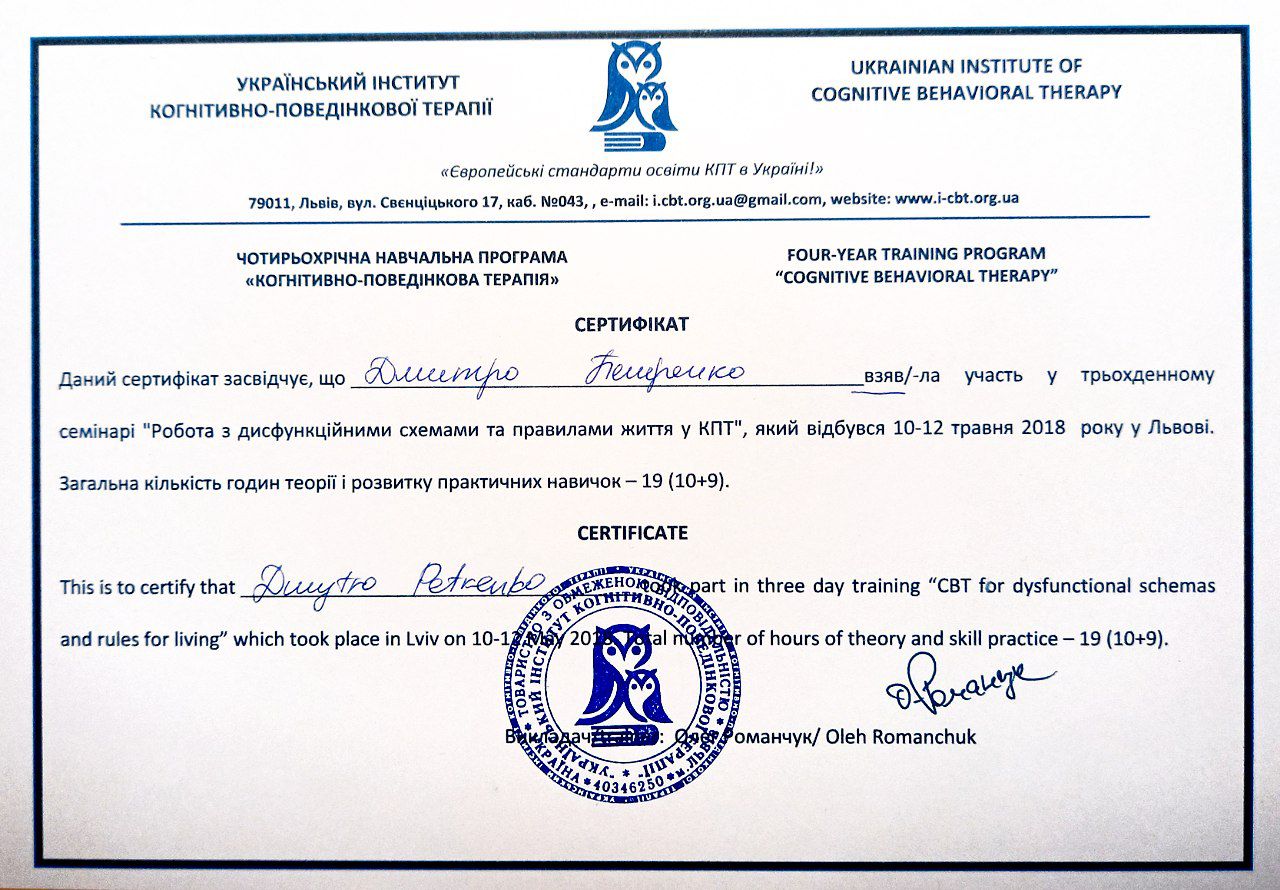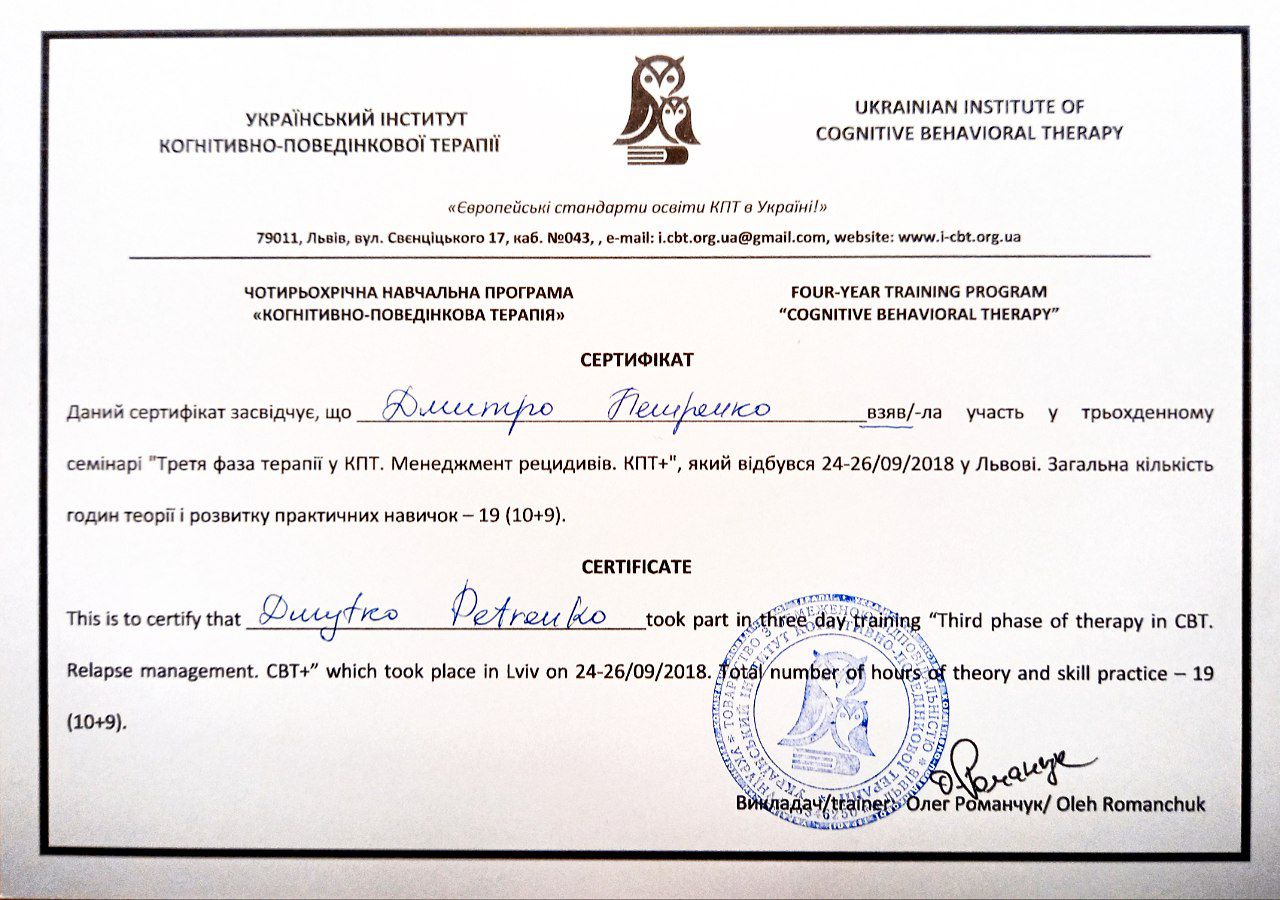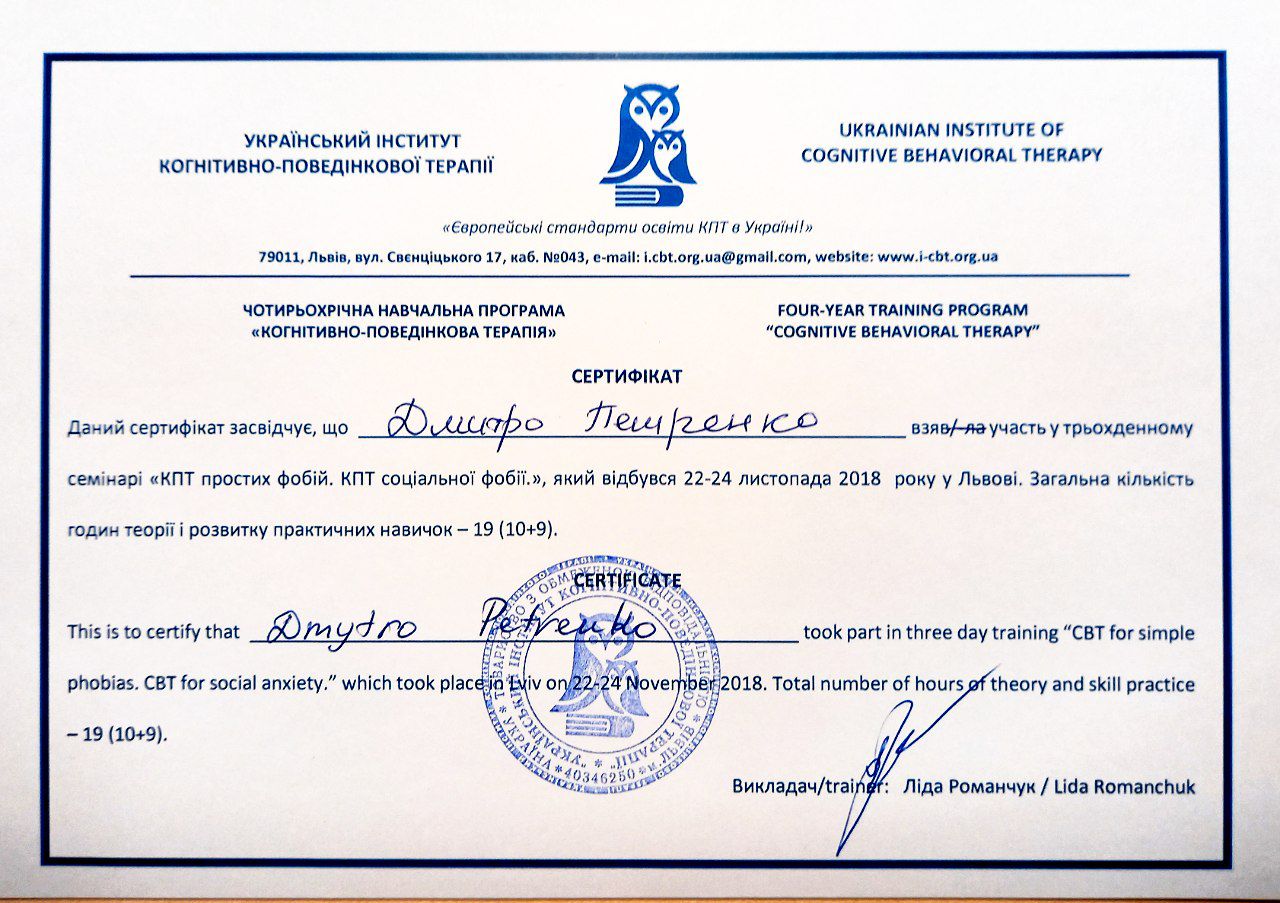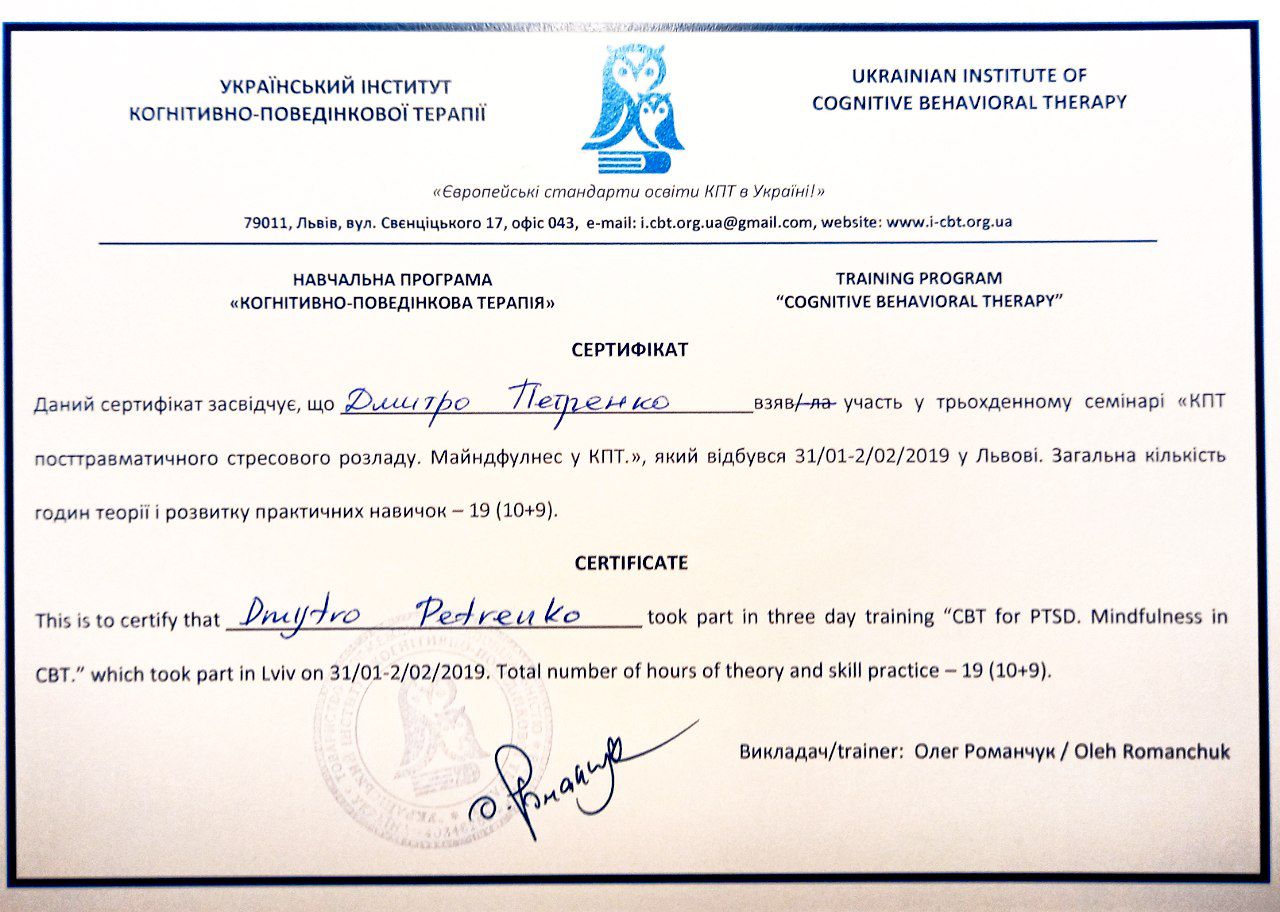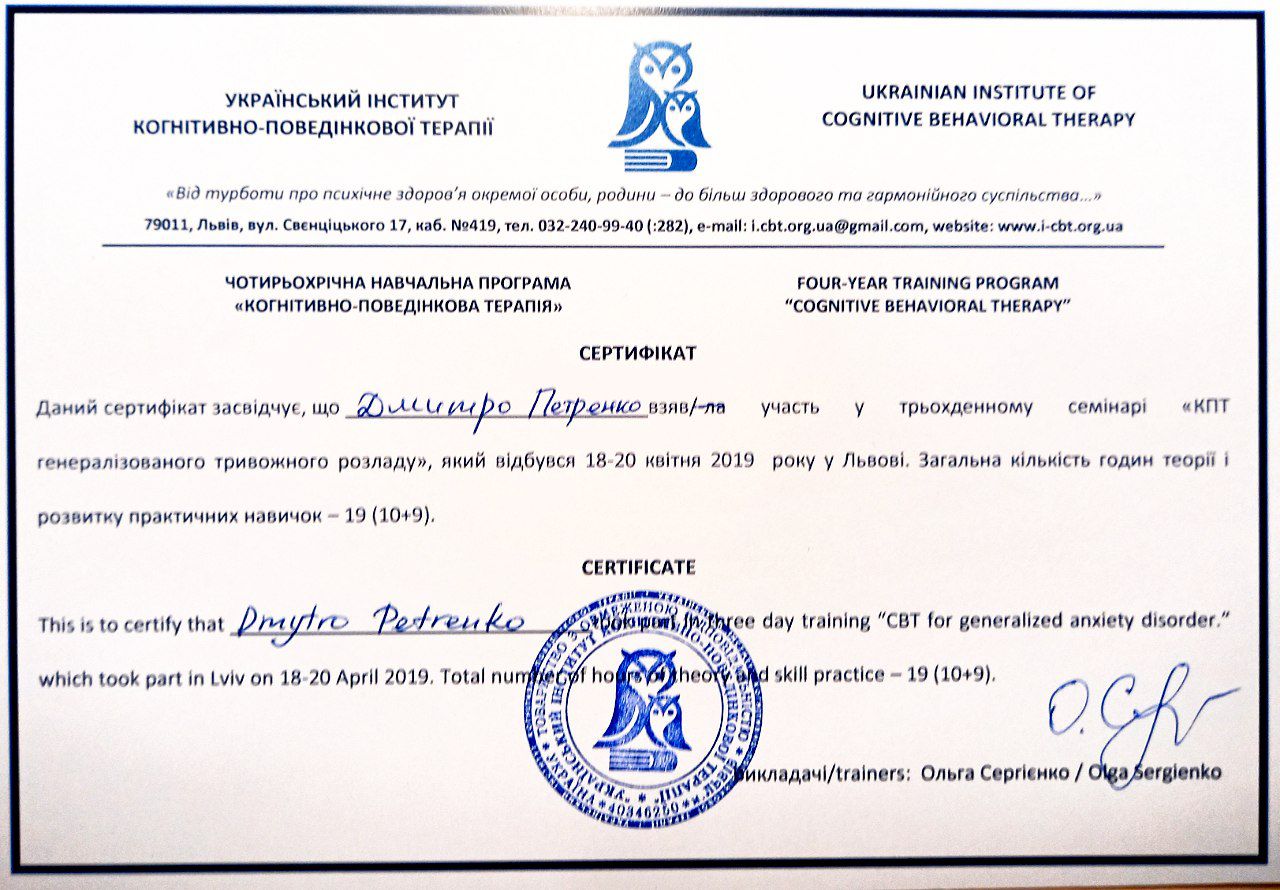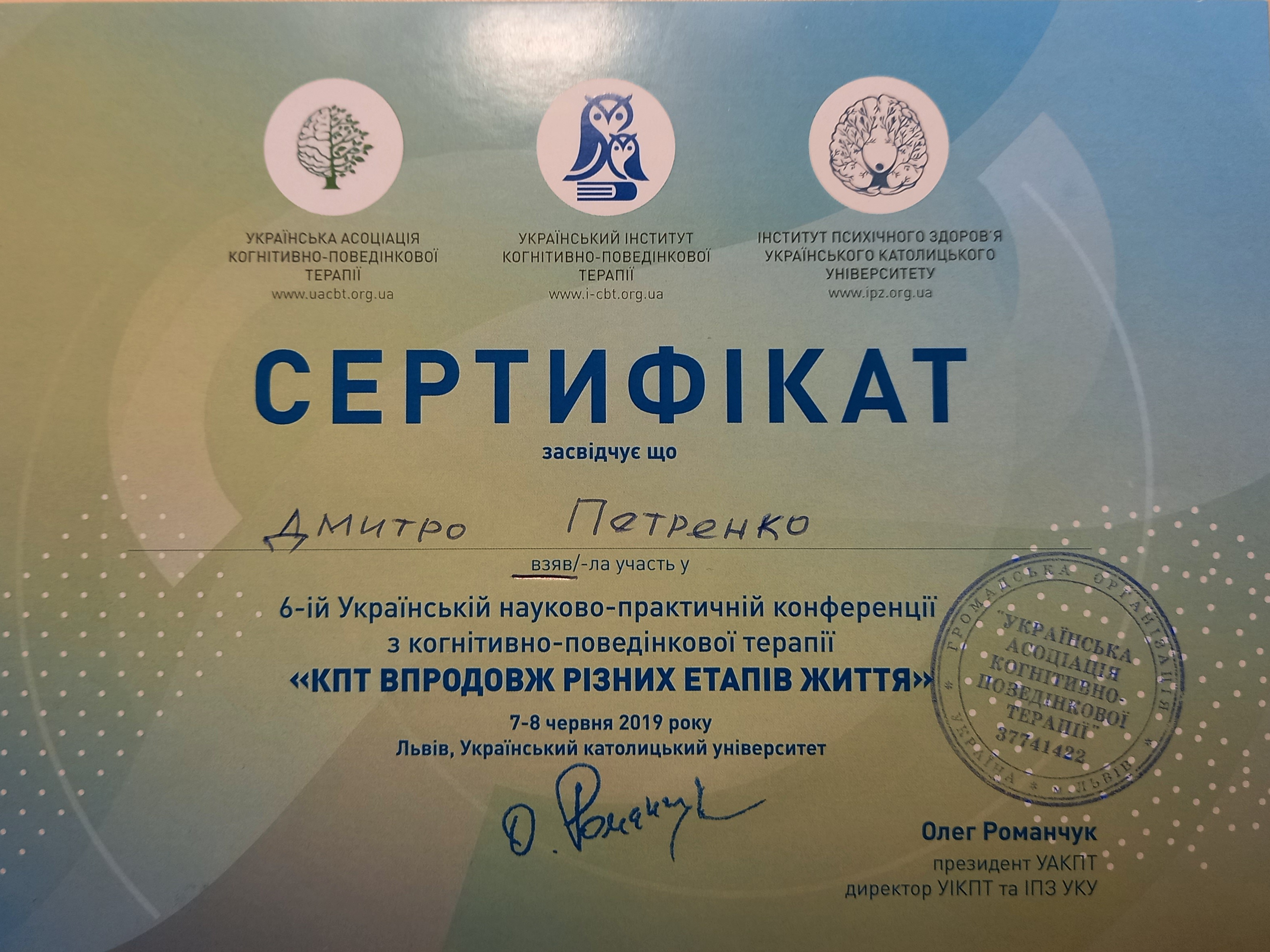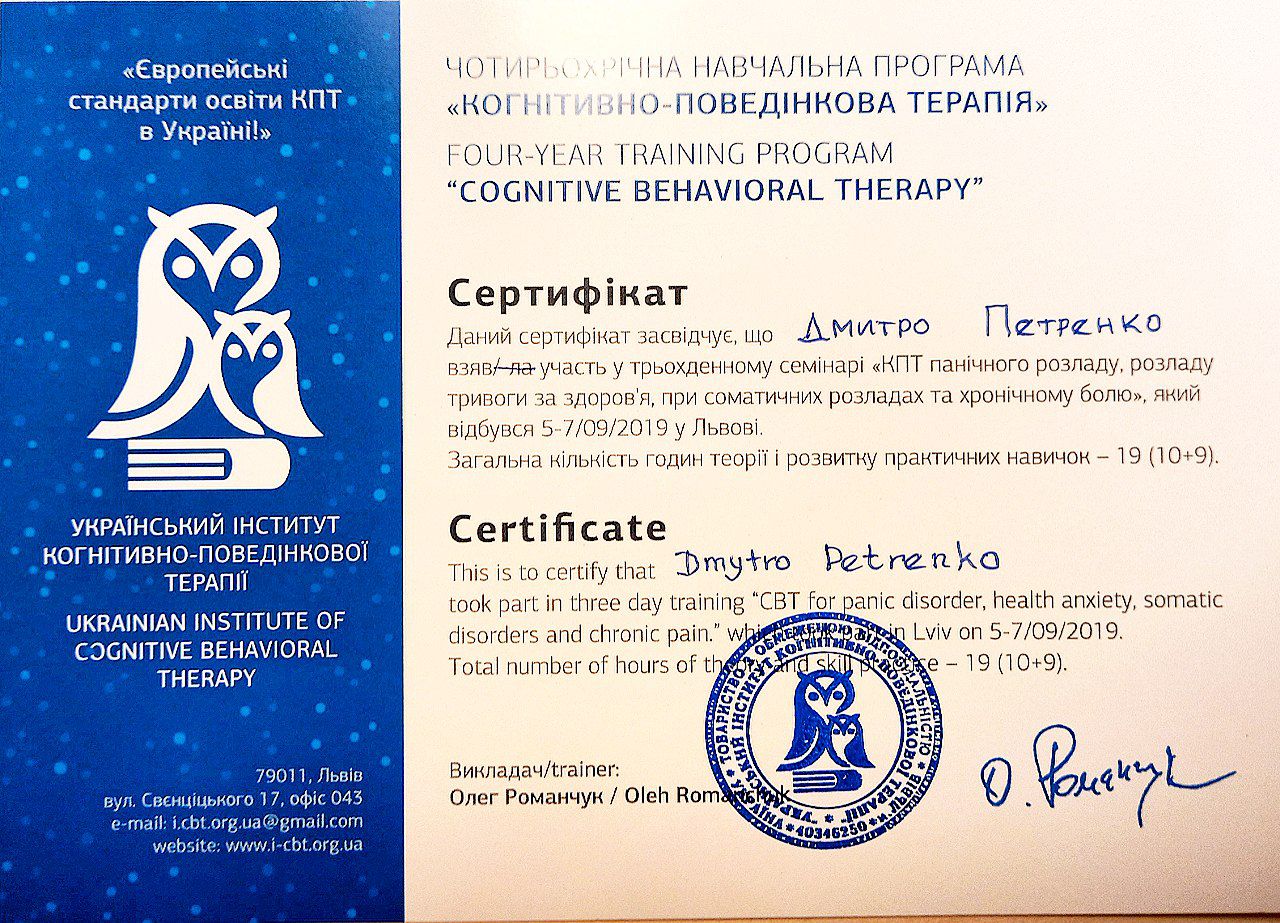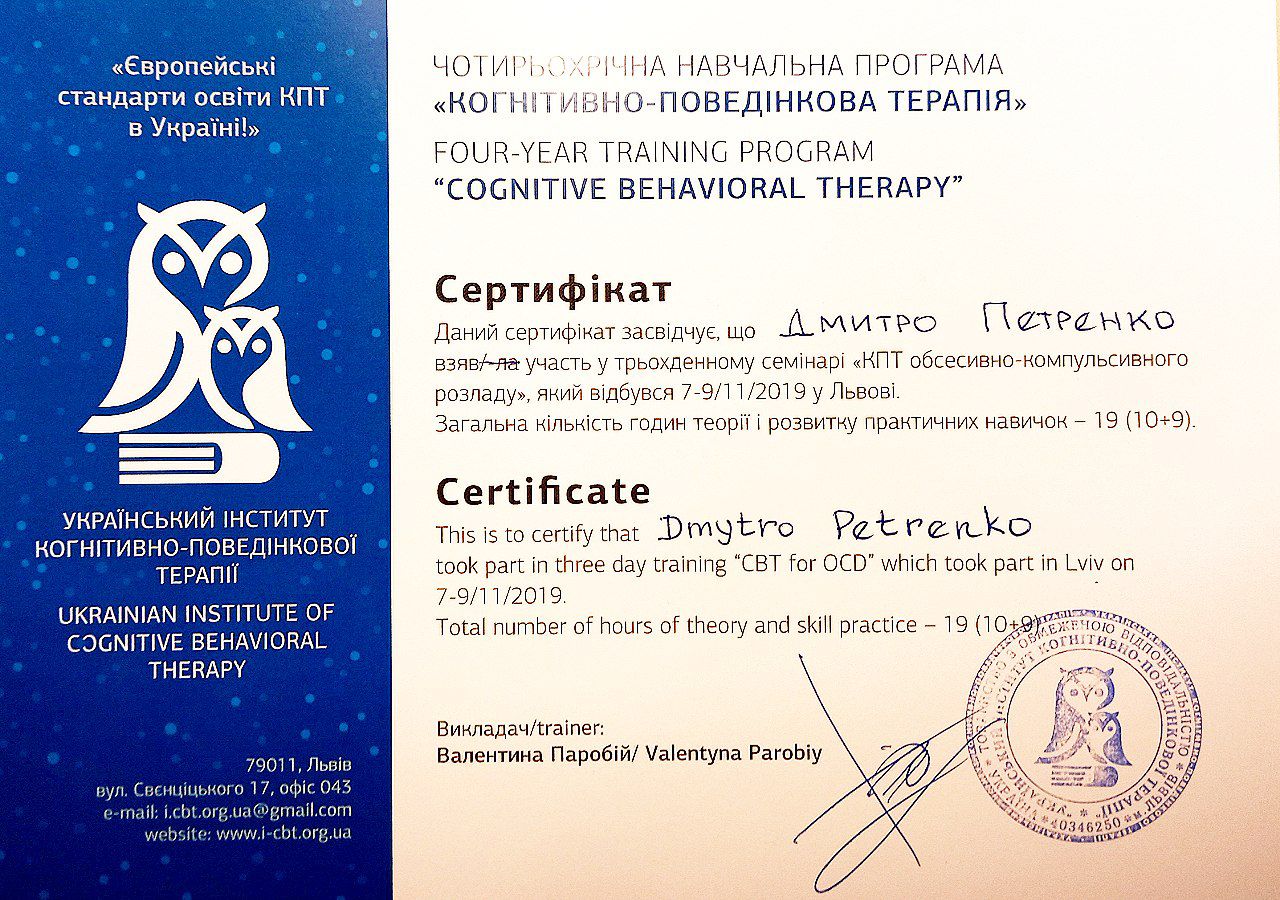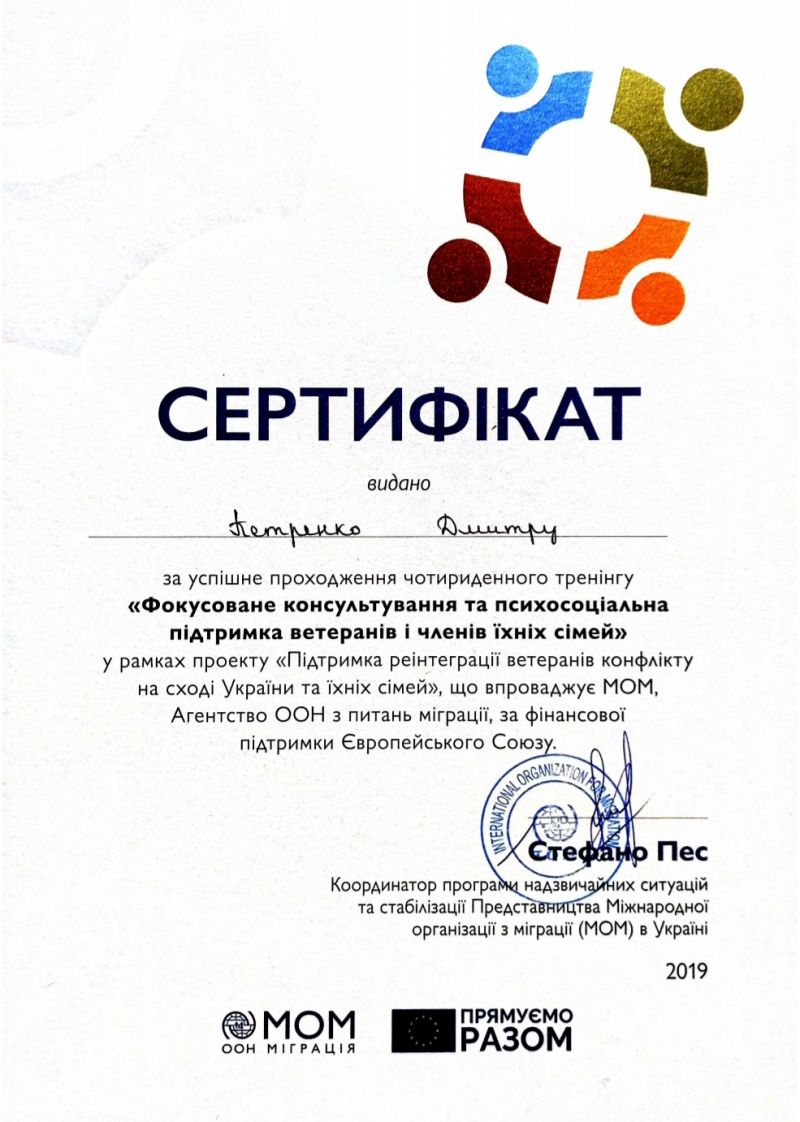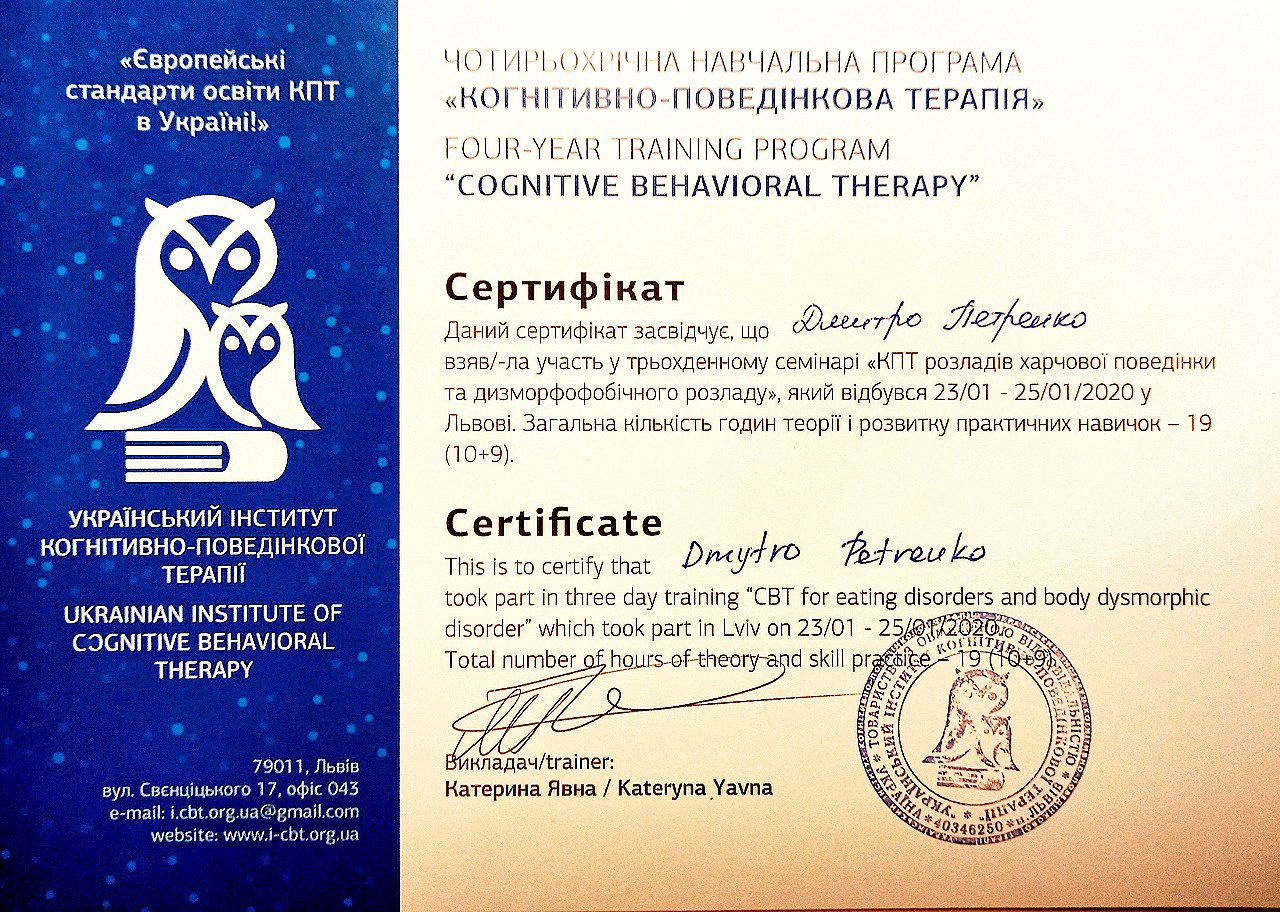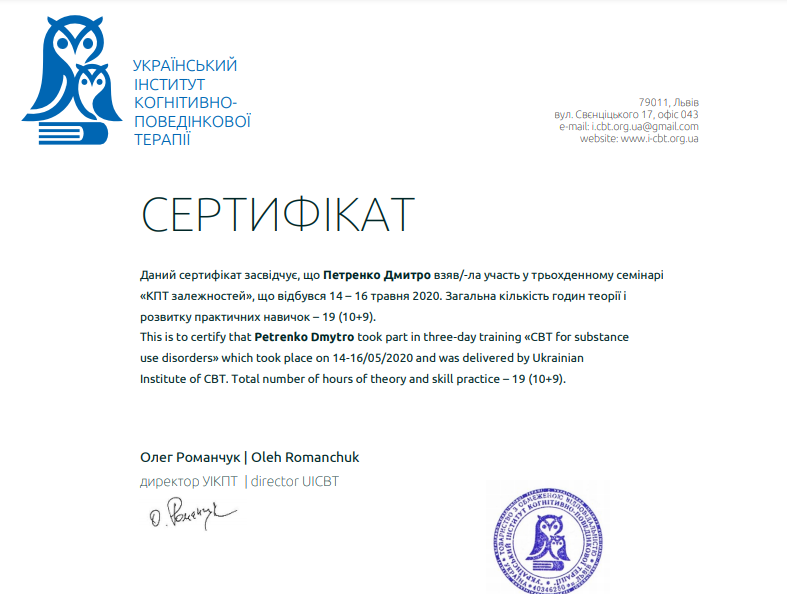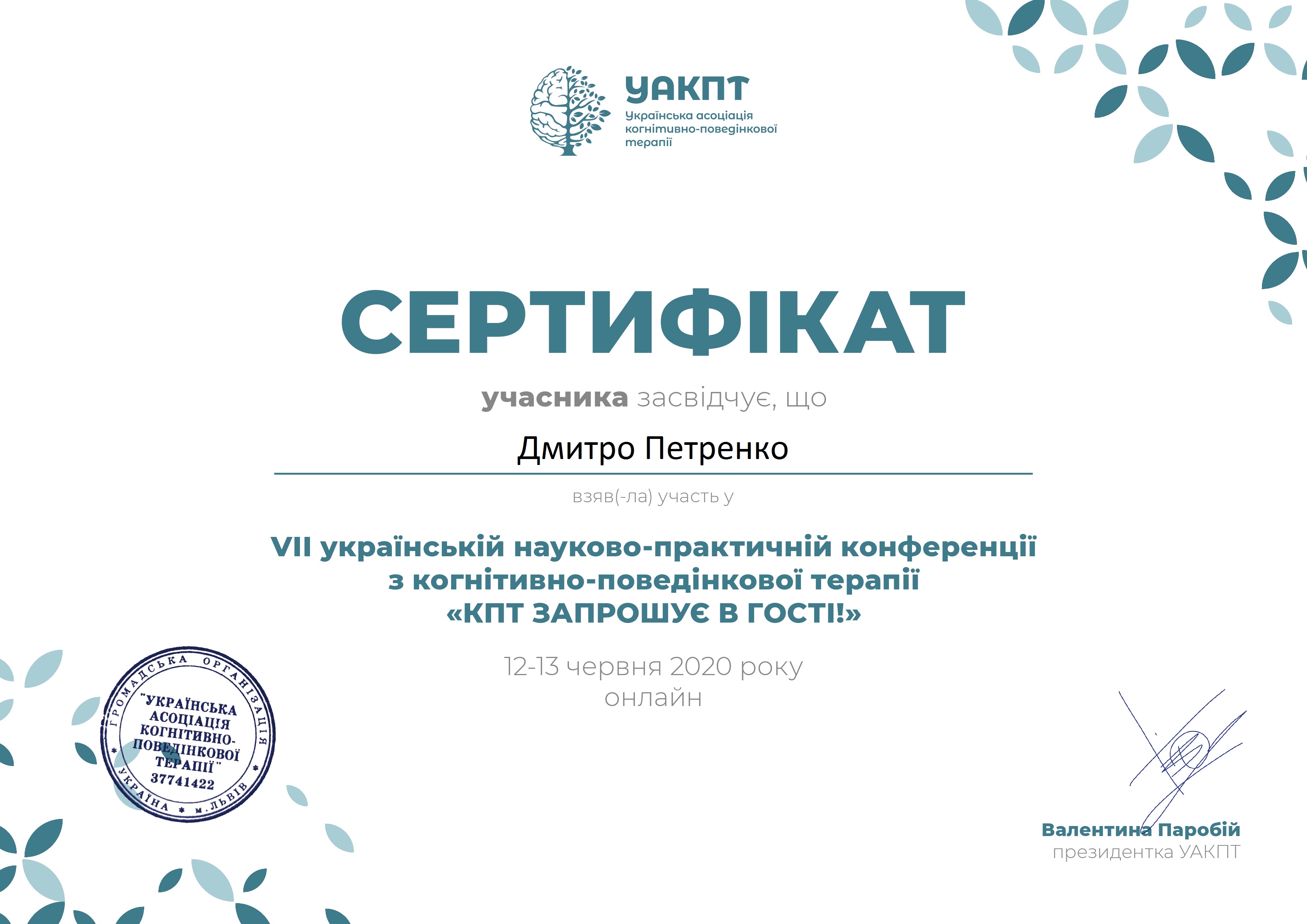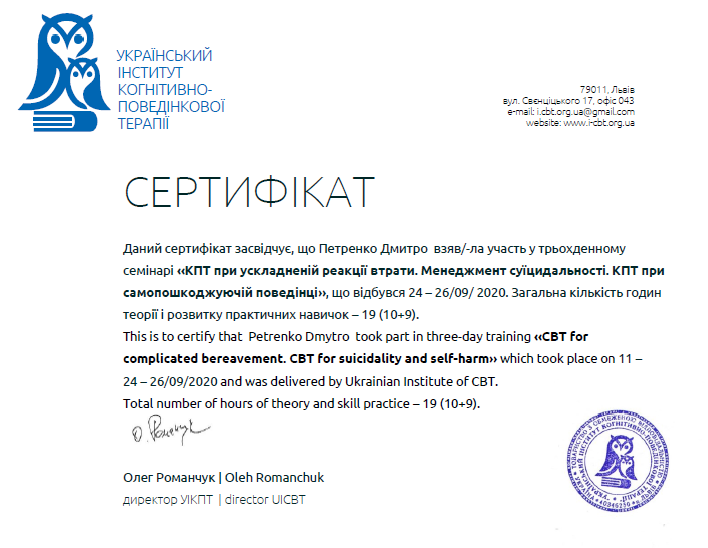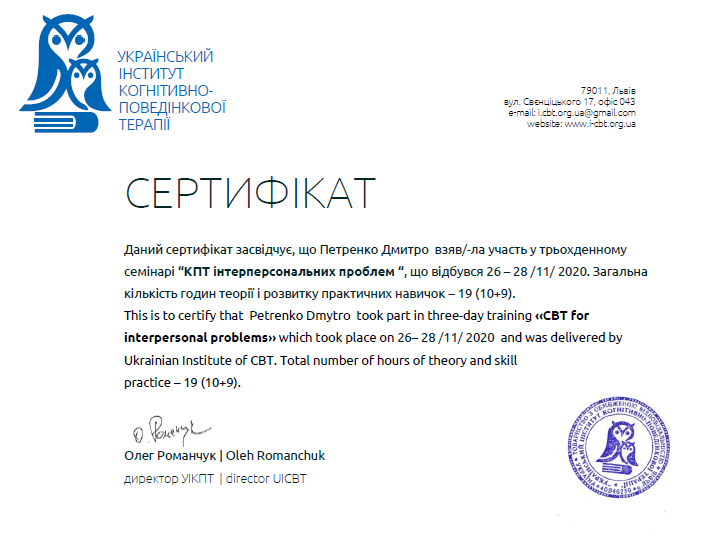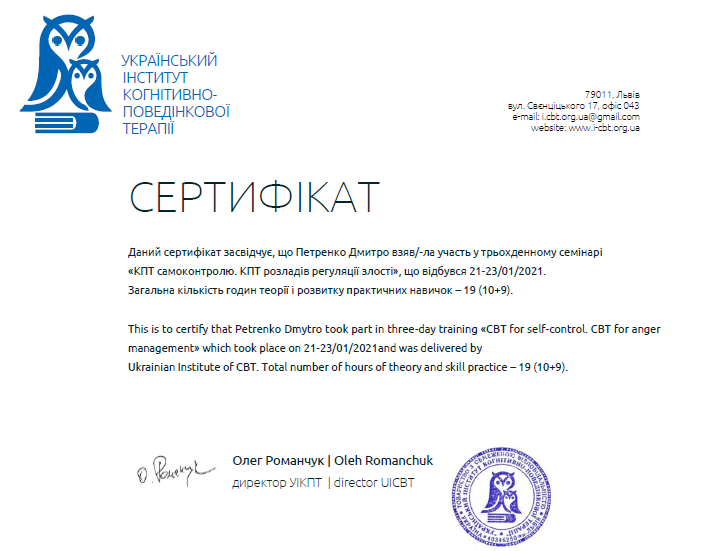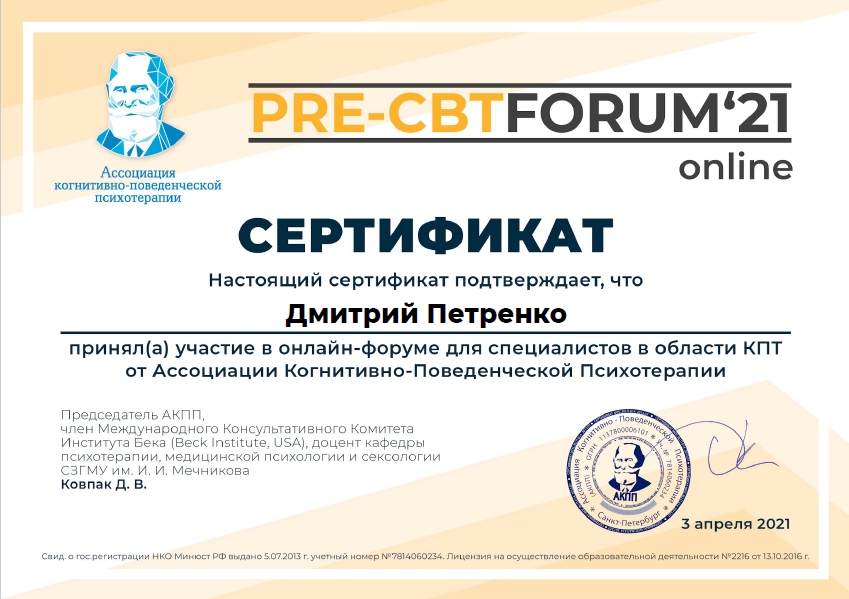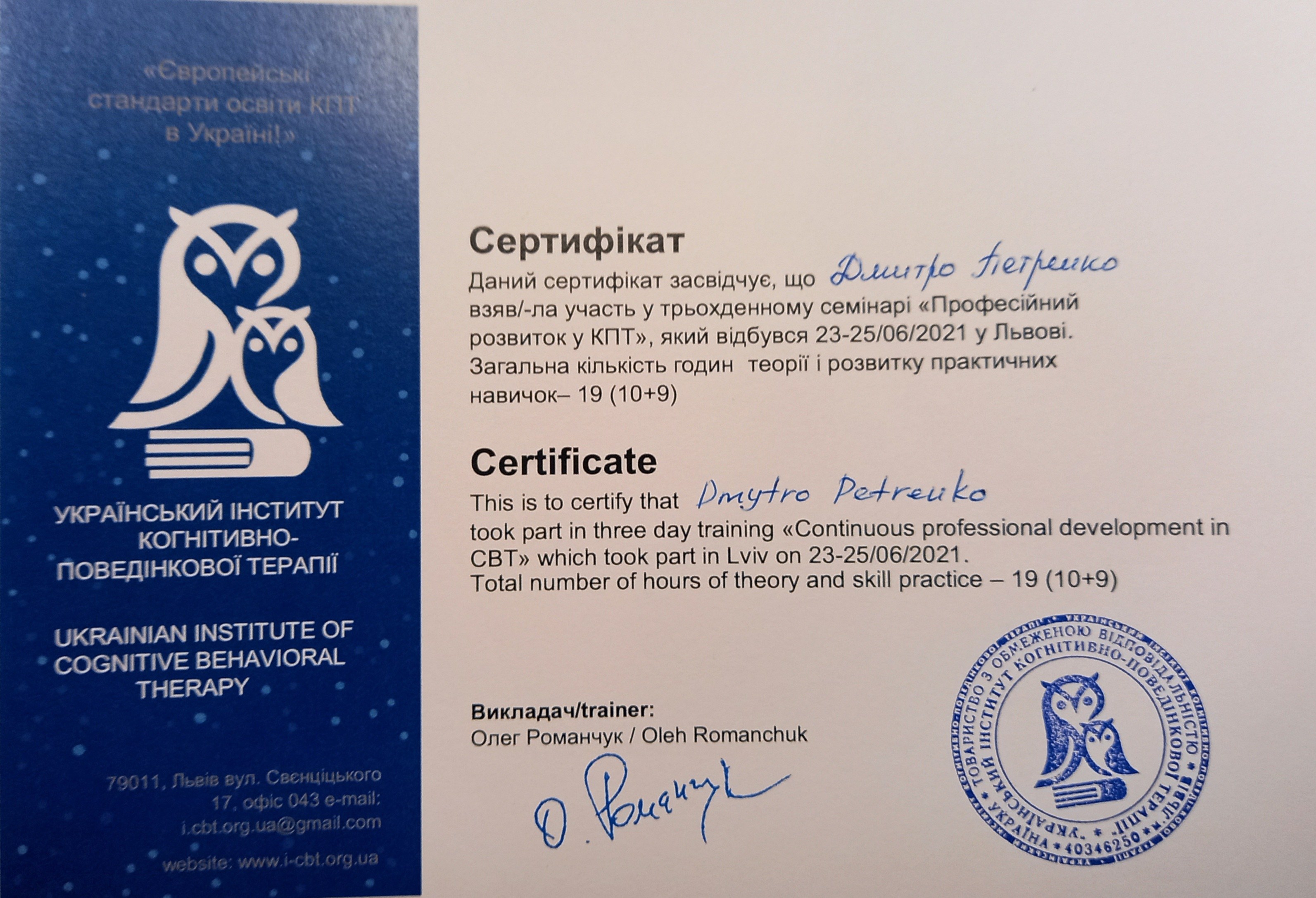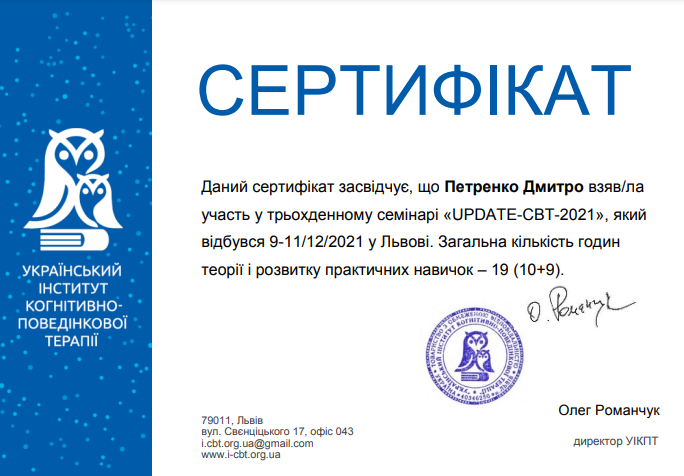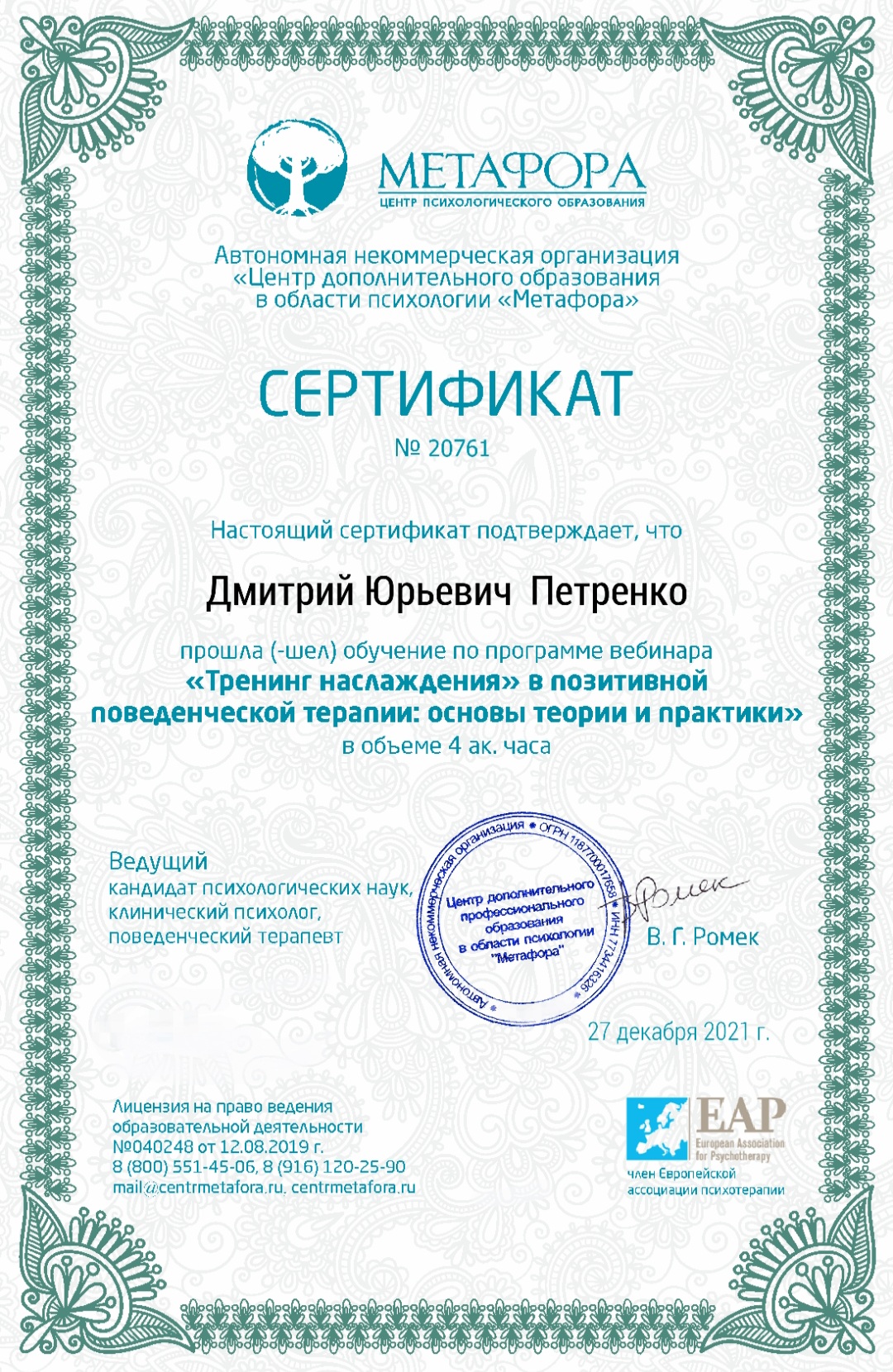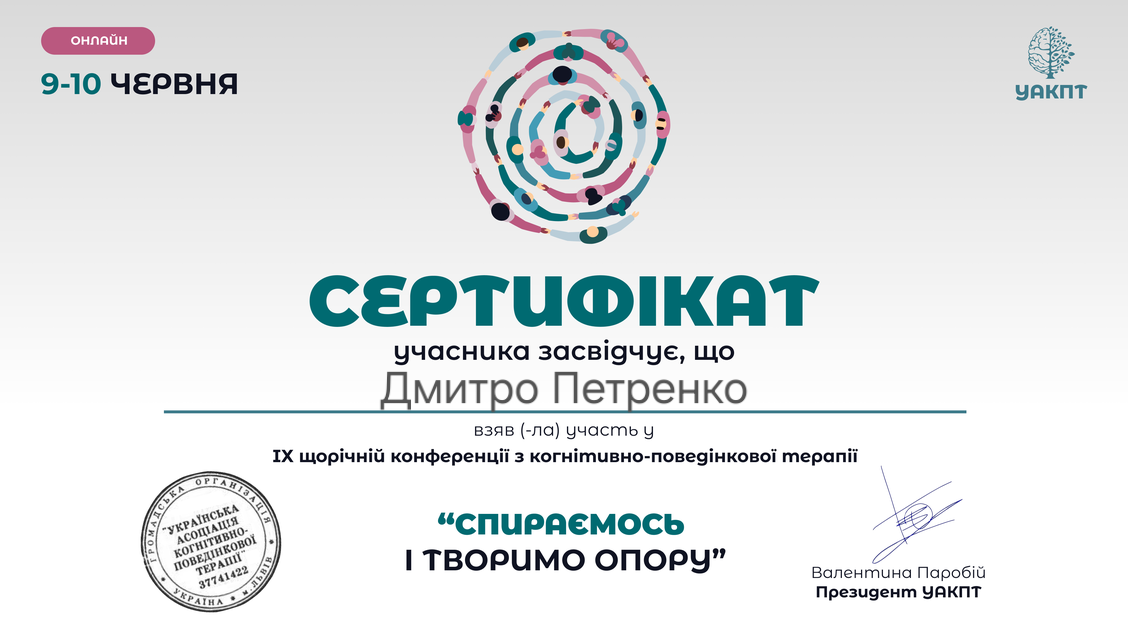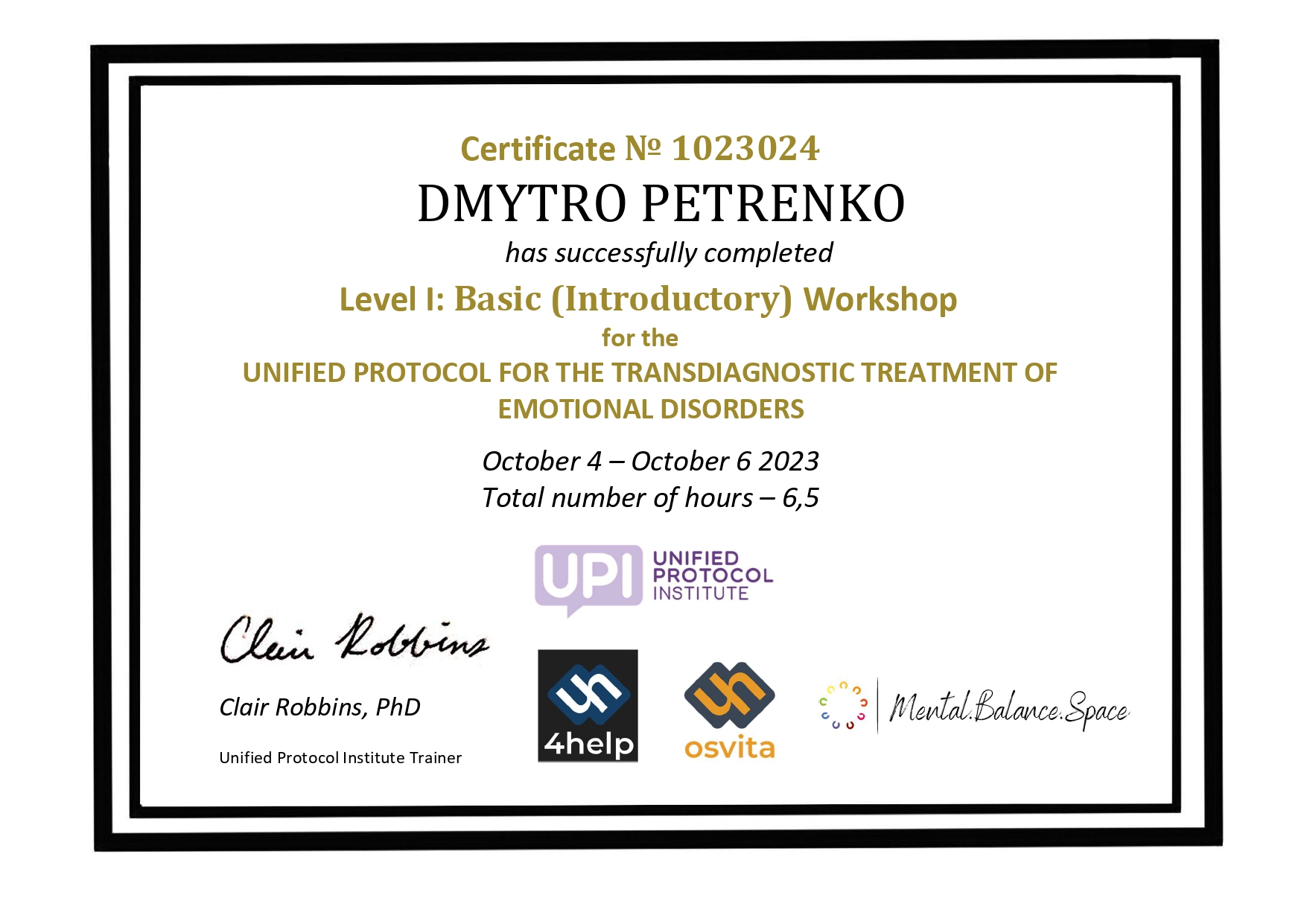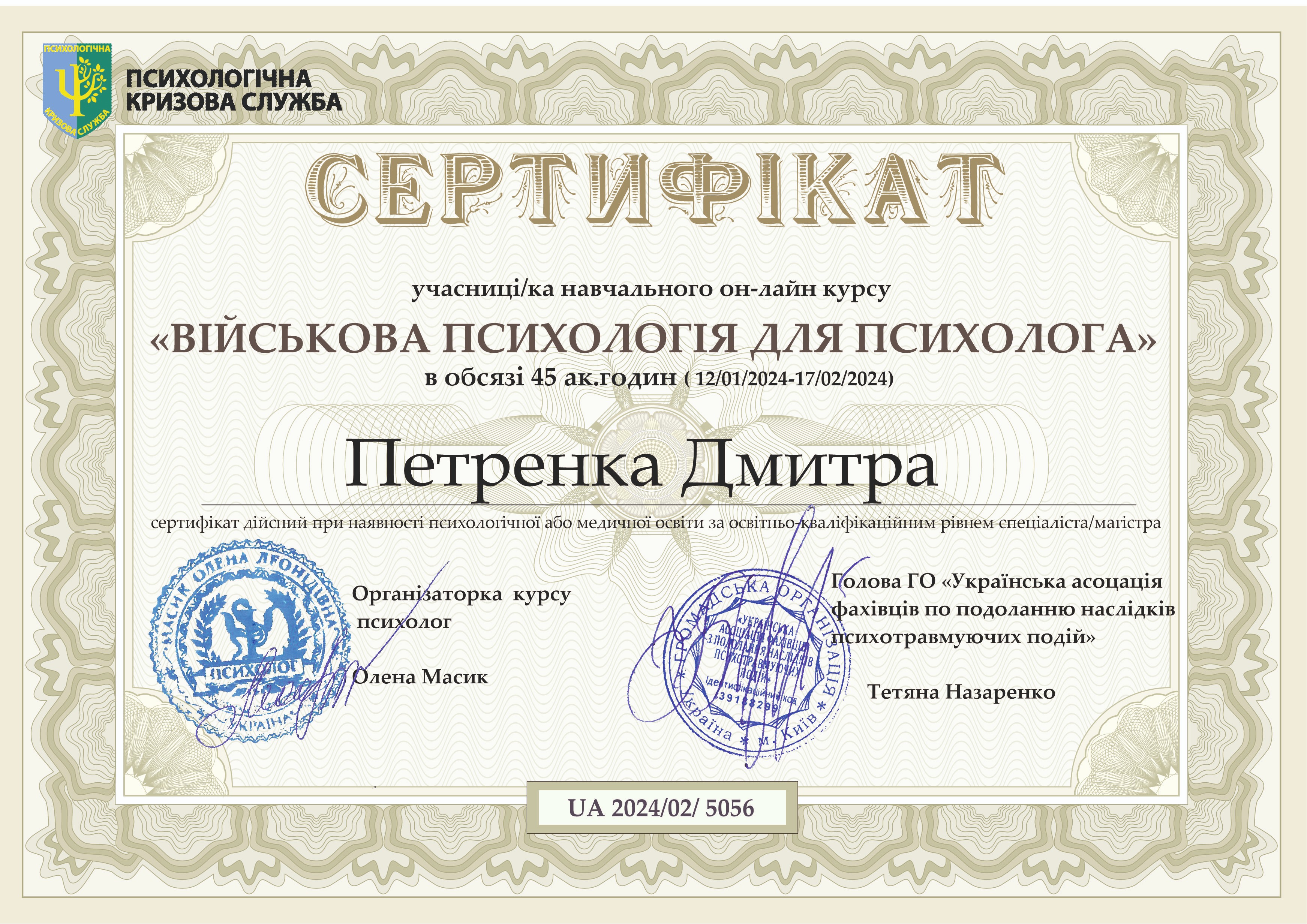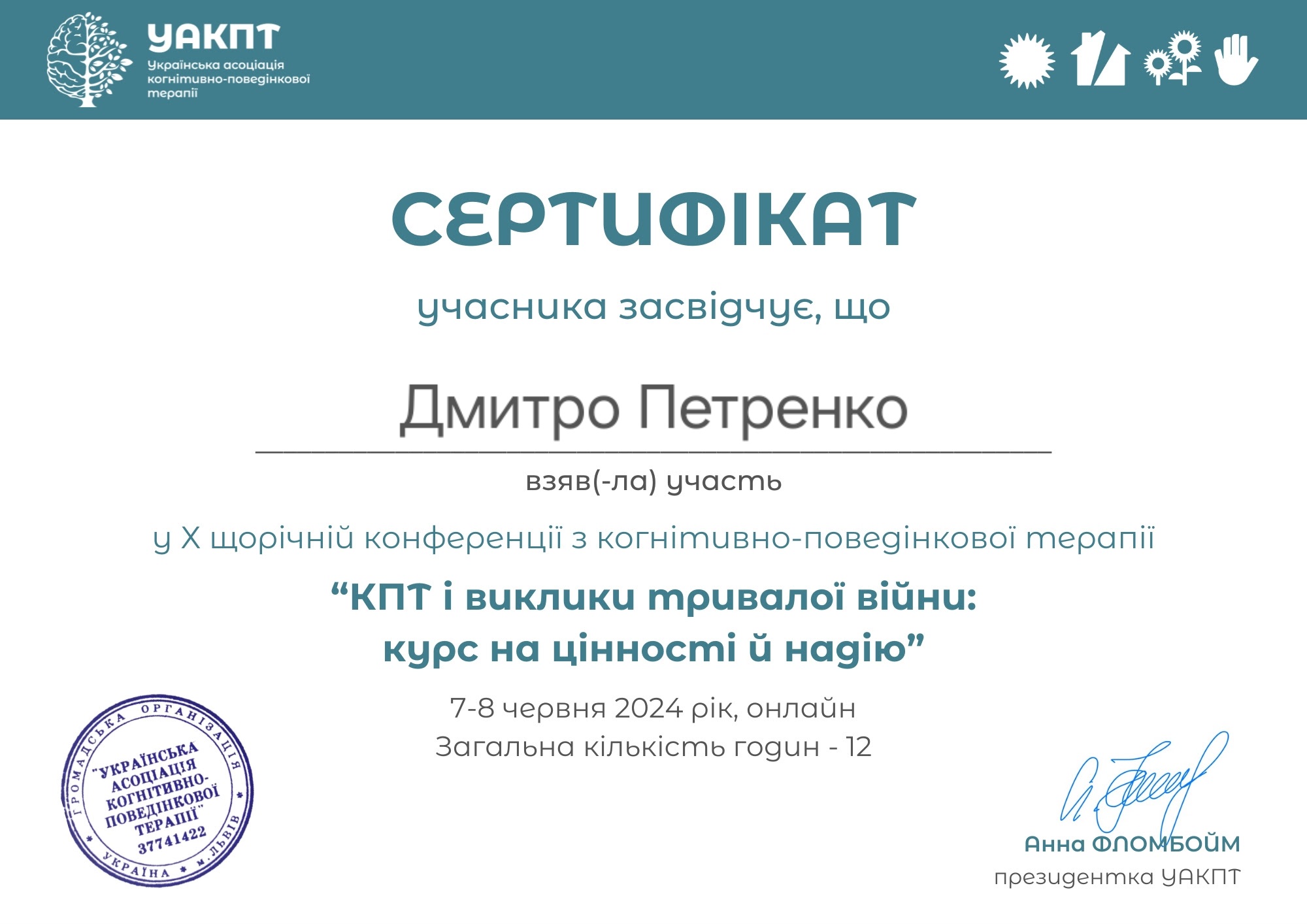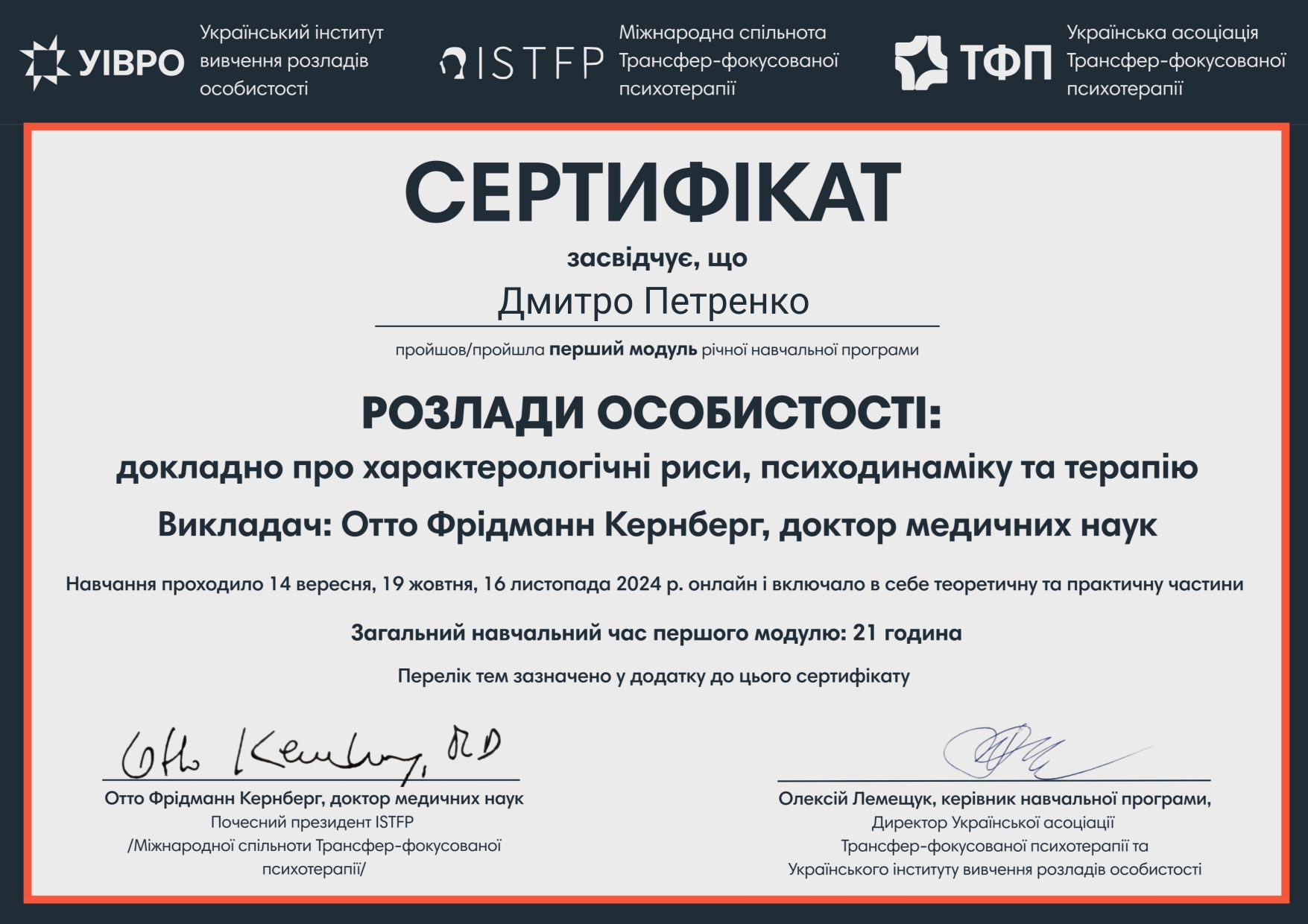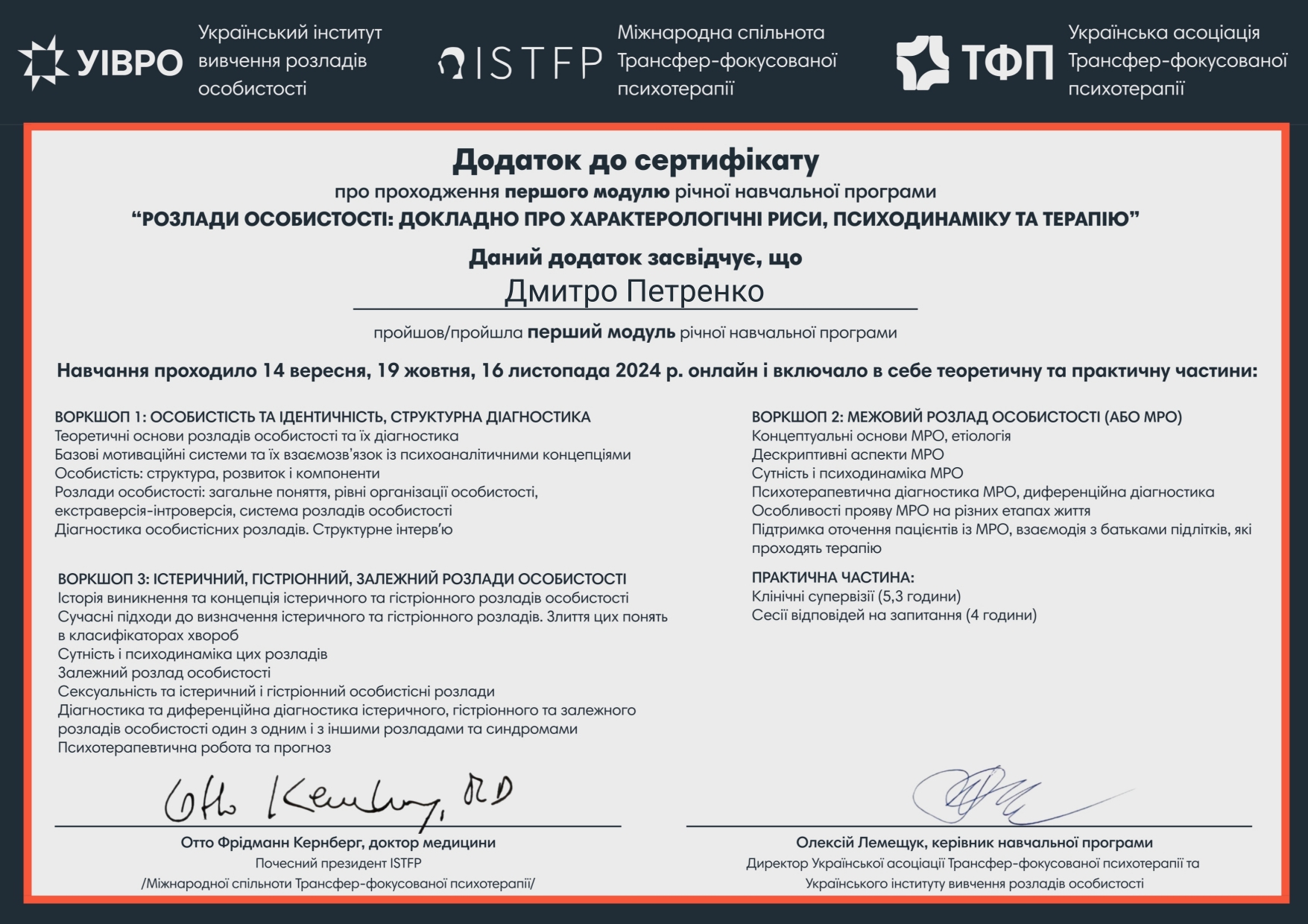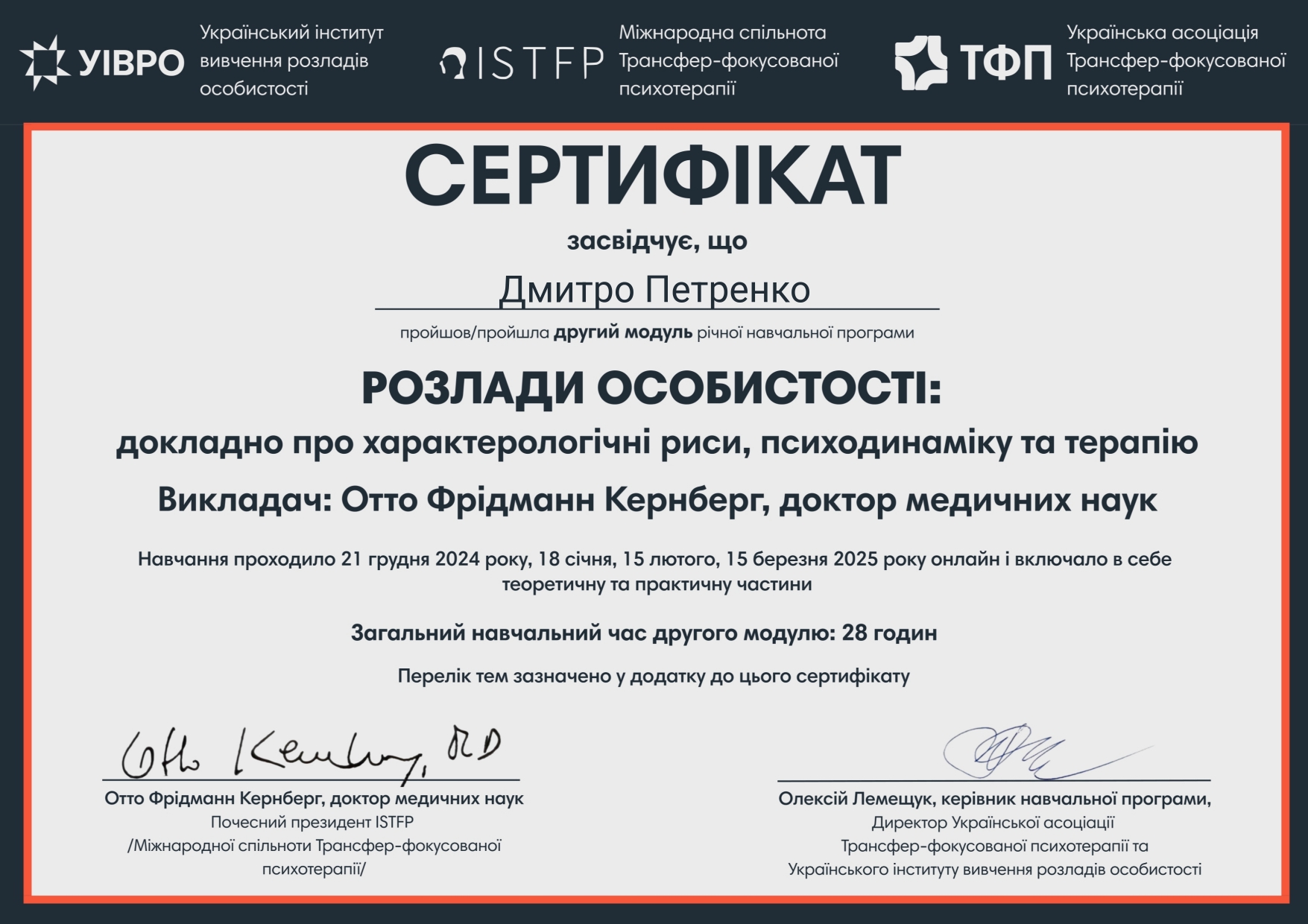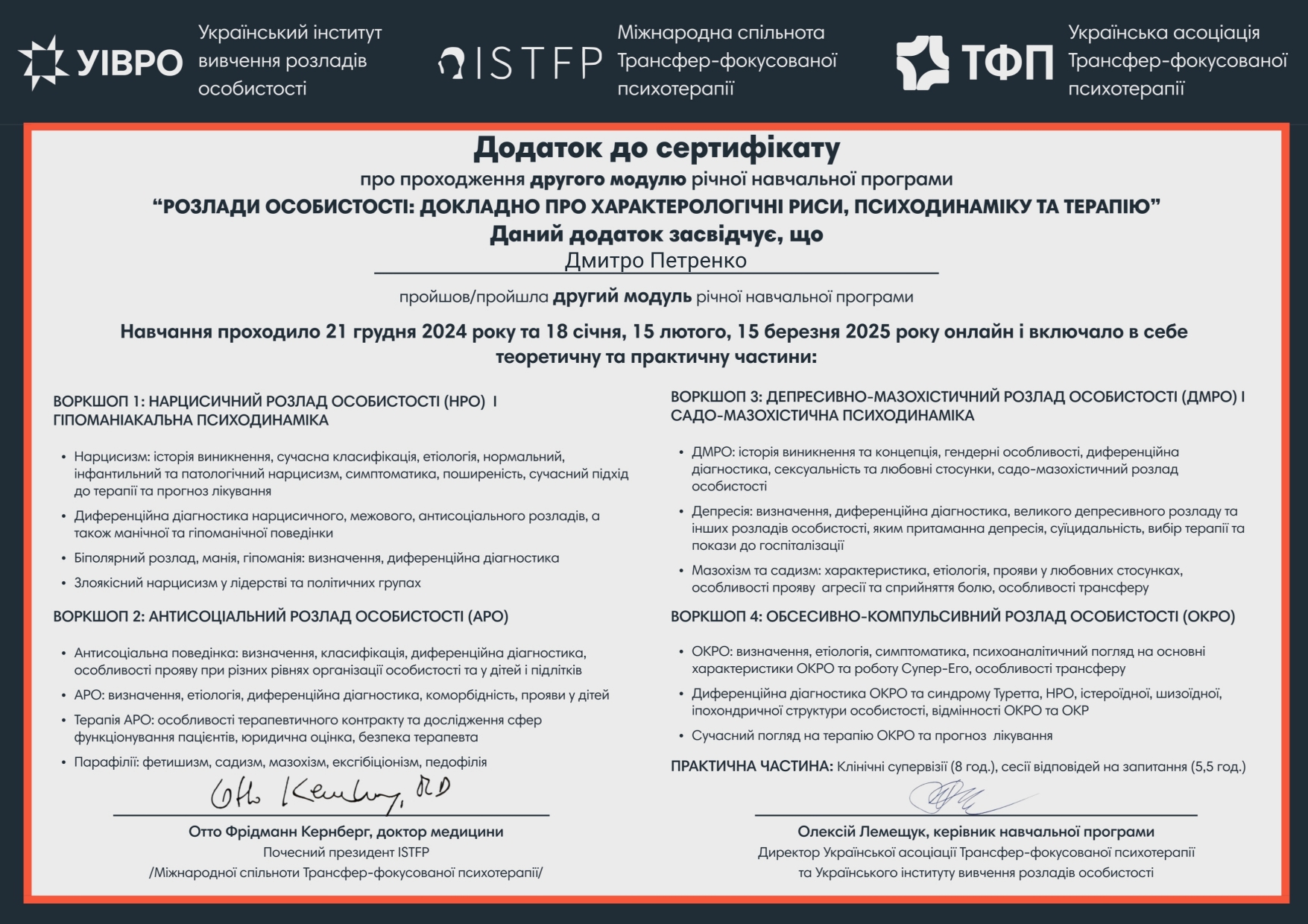Іра
Діма - неймовірний професіонал та людина. Для мене терапія це не тільки про метод, а в першу чергу про стосунок, який будується на сесіях. На сесіях з Дімою я відчувала, що мене чують та підтримують. Діма завжди задає влучні та глибокі питання, які підсвічують важливі моменти. Також, його фідбек та коментарі дуже влучні, емпатичні і резонували з тим, що я відчувала. Він дає дуже гарну теоретичну базу, має великий досвід роботи, що відчувався на кожній сесії. Я дуже вдячна за наш час співпраці і точно можу сказати, що це було одне з найкращих рішень піти на терапію до Діми. Якщо ви сумніваєтесь чи йти до нього в терапію, то я однозначно раджу спробувати і сподіваюсь, вам відгукнеться так само як і мені
Віта
Я була в терапіїї рік. Плюси терапії: - У нас завжди була стандартна сфема: 1 - я виговарююсь і розказую про все, що відбувалось за тиждень, 2 - ми обираєм найбільшу проблему з того, що сталось, 3 - ми її обговорююєм і домовляємся, що з нею робити. Мене така схема завжди заспокоювала. Ніколи не було такого, що ми полізли у щось травматичне і десь на середині він сказав "сесія закінчується".; - Мені сподобалось, що перед початком роботи є декілька сесій з опитуванням. Я розказую про себе все і в психолога з початку є розуміння, що я за людина і я одразу бачу його реакцію і відгук на важливі для мене речі. І ми обоє можем вирішити чи комфортно працювати з такою людиною. - На сесіях ми зосереджувались на конкретних проблемах і їх вирішеннях. Було трохи копання в минулому, але не більше, ніж потрібно. Не було оцього копирсання і перепроживання в травматичному досвіді в минулому незрозуміло заради чого. На той момент я була в депресії через переїзд з закордону додому і повернення до чоловіка, який морально мене знищував. Терапія допомогла мені визнвчити, що нормально для мене, а що ні. Я змогла вийти з тих стосунків, перестала пити антидеприсанти і заспокоїтися щодо переїзду. Я ніколи раніше не думала, що я це зможу. Мені дуже пощастило прийти в терапію до Діми в той момент. Мінуси: - Щоб був результат треба робити домашні)
Maxim
Я более чем очень доволен работой с Димой! Это профессионал своего дела, прагматичен и честен! Работа с Димой приземленная/практичная, каждый сеанс плодотворный и дает уйму пунктов на размышление, плюс ко всему, домашние задания, на которых именно сам ты учишься понимать свои ошибки и как выйти из той или иной парадигмы. А самое крутое, то что эти домашние задания еще разбираются вместе с Димой, и это закрепляет эффект! По мимо всего этого, сама беседа уже приносила свои плоды, благодаря тому, как и какие Дима задавал вопросы, в жизни очень редко кто бы мне их задавал в таком контексте! Спасибо тебе за труды, профессионализм и терпение со мной :)
Марія
Моя терапія з Дімою продовжувалась декілька місяців і зараз набула підтримуючого формату. Я дуже радію, що з першої зустрічі я відчула високий рівень емпатії та розуміння. З Дімою завжди легко і комфортно. Хоч ми і займались онлайн, дистанція не відчувалась взагалі, тому що відразу вийшло побудувати звʼязок, заснований на щирості, довірі та чесності. Діма проводить практику досить структурно, що для мене є важливим. Виявилось, що мою тривогу можна було розкласти на причинно-наслідковий ланцюжок, що є подібним до мого способу мислення, а через те було легше зрозуміти “чому”, “як” і що з цим робити. Терапія однозначно змінила на краще моє розуміння себе та світу в цілому. Я вдячна, що зараз маю навички і знання, які можу використовувати в повсякденному житті. Раджу Діму як висококваліфікованого спеціаліста, який ніколи не порушить ваші кордони, але в той же час надасть неймовірну підтримку та допомогу з вашим запитом.
Аліна
Працюємо з Дімою вже більше 2х років. Дуже ціную те, що ще на першій сесії він пояснив, що він потрібен мені не лише для того, щоб справитись з моїми психологічними проблемами, а й для того «щоб навчитися бути психотерапевтом самій собі». Тобто навчитись певним методикам, як допомагати самій собі і виходити з кризових ситуацій, а не бути залежною від психотерапевта. Що, на мою думку, характеризує його як хорошого фахівця. За два роки Діма допоміг мені справитись з багатьма психологічними проблемами, такими як невпевненість в собі, тривожний розлад та навіть фобія. Зараз продовжуємо працювати в форматі підтримки - в випадку складнощів та сильних переживань, оскільки терапія дала дуже хороші результати в плані мого самопочуття. Дуже рекомендую Діму як хорошого, висококваліфікованого психотерапевта з великим досвідом роботи!
Sofiia
Я працювала з Дімою двічі — під час пандемії ковіду і одрауз після повномасштабного вторгення. І маю намір прийти втетрє, якщо відчую в тому потребу. І це вже має вам багато про що сказати :) Не знаю, на що саме ви будете опиратися і що буде для вас важливим, коли шукатимете для себе терапевта. Розповім, що спрацювало у моєму випадку. 1. Діма розумна людина і дуже професійний психотерапевт з крутою базою і досвідом. Це відчутно одразу і в роботі на довгій дистанції в цьому ви тільки будете переконуватись. 2. Емпатія і атмосфера повного прийняття. Для мене це досі з розряду магії поза Гогвартсом, але у Діми хист створювати дуже класну атмосферу на зустрічах. 3. Чіткість, раціональність, системність. Це пункти, які зробили для мене роботу дуже зрозумілою і комфортною. 4. Жарти і людяний піхід. Це можна було б вписати у атмосферу, але є відчуття, що варто про це сказати окремо. Бо, знаєте, психотерапія то не завжди простий процес (спойлер: майже завжди він є якраз непростим), але ці речі робили його більш м'якшим. Окреме величезне дякую Дімі за моменти саморозкриття (то коли терапевт ділиться з вами своїм персональним досвідом), бо то завжди було щиро, вчасно і підтримуюче. Підсумовуючи, просто хочу сказати, що досвід роботи з Дімою і психотерапія — це те, що дозволило мені перейти на набагто якісніший рівень життя, пройти дуже складні і трансформуючі етапи і кризи, прийняти себе і навчили давати собі ради в цьому житті. І я досі здивована і вдячна (навіть не знаю кому:) за те, що дуже випадково випало працювати саме з Дімою і це був 100% метч. В підсумку тільки вдячність.
Ана
З Дімою я займалась терапією що до зменшення рівня бруксизму і взагалі тривожності. Сподобалось що Діма використовує підхід оснований на наукових дослідженнях і не обіцяє чудес. За 9 місяців терапії я доволі сильно покращила свій стан, почала знов відчувати задоволення від життя і залишила корисний досвід із вправ, які допомагають розслабитись і почуватися спокійніше.
Богдан
Працював з Дімою в січні-лютому 2022 року. З персого сеансу зрозумів, що з Дімою буде меч і ми змодемо працювати. Працювати було дуже комфортно - сеанси проходили продуктивно, Діма дуже щирий, відкритий. Я побачив полдитивну динаміку вже після перших сеансів, хоча на це і не розраховував. Атмосфера наи прийомах дуже класна. Однозначно реколмендую Діму як спецаліста.
Anastasiia Tsyganenko
Під час роботи с Дімою мене дуже сподобалась щирість з якою Діма ставиться до роботи. Для Діми немає неважливих проблем, він завжди уважно вислухає і приділить увагу тому, що хвилює клієнта. Діма має доволі систематичний підхід до роботи. Кожна зустріч має певну структуру, що дає змогу більш ефективно використати час. Нові знання і техніки Діма теж дає поступово і сплановано, інколи може трохи забігти наперед, якщо для клієнта це необхідно, але скоріше як виключення. Діма відкритий до зворотного зв’язку і готовий адаптувати свій підхід, щоб співпраця з клієнтом була легкою і ефективною.


